TV Shows Quotations
Sci-Fi Series: Navigating Ethical Quandaries on Screen
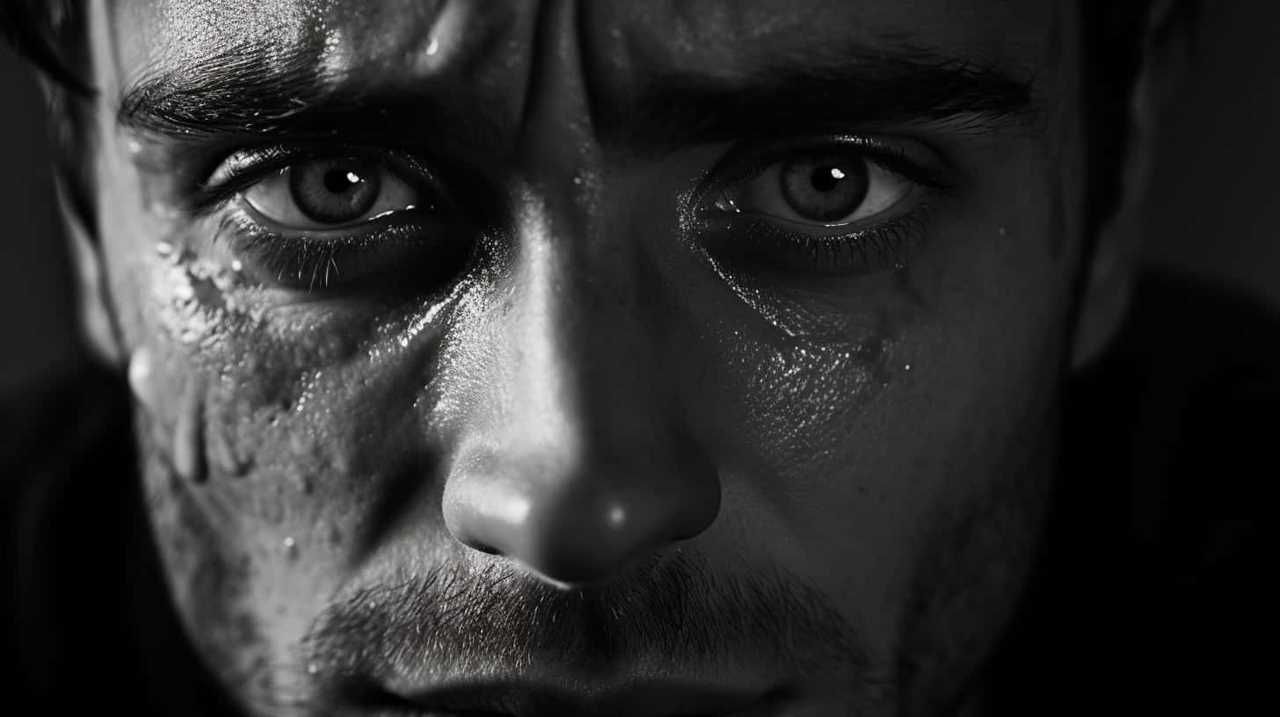
Welcome to ‘Sci-Fi Series: Navigating Ethical Quandaries on Screen’! This unique exploration dives into the moral dilemmas and ethical questions portrayed in the groundbreaking sci-fi shows of our time.
Strap in, because we’re about to embark on a journey through the intricacies of futuristic storytelling. From the mind-bending twists of ‘Black Mirror’ to the philosophical musings of ‘The Matrix,’ these series push the boundaries of imagination while forcing us to confront the ethical implications of emerging technologies.
Join us as we navigate the complex terrain of artificial intelligence, genetic engineering, virtual reality, and more. Get ready for an intellectual adventure that will challenge your beliefs and ignite the spark of innovation within.
Let’s dive into the unknown together!
Key Takeaways
- Sci-fi series like ‘Black Mirror’, ‘Westworld’, ‘Humans’, ‘Orphan Black’, ‘Battlestar Galactica’, ‘The Handmaid’s Tale’, ‘Doctor Who’, and ‘Altered Carbon’ raise ethical questions about various technological advancements and their impact on society.
- These shows challenge our understanding of consciousness, personhood, and responsibilities towards sentient beings.
- They explore ethical dilemmas in genetic engineering, cloning, memory manipulation, surveillance technology, consciousness transfer, and mind uploading.
- The shows prompt viewers to question societal norms, power dynamics, moral responsibility, and the consequences of unchecked technological advancement.
The Moral Dilemmas in ‘Black Mirror
How do the moral dilemmas in ‘Black Mirror’ force us to confront the ethical implications of technology? As avid viewers of this groundbreaking sci-fi series, we find ourselves grappling with the profound ethical questions raised by the show’s exploration of memory manipulation and surveillance technology.
One of the key ethical implications of memory manipulation depicted in ‘Black Mirror’ is the potential for abuse and manipulation. The ability to alter memories raises questions about the authenticity of our experiences and the impact it may have on our personal identity. Should we’ve the power to erase or modify our memories? And if so, who should be entrusted with this responsibility?
Similarly, the morality of surveillance technology is a recurring theme in ‘Black Mirror’. The show presents scenarios where individuals’ privacy is violated in the name of security or entertainment. The ethical dilemma arises when we consider the trade-off between safety and personal autonomy. Is it justified to sacrifice our privacy for the greater good? And who gets to decide on the extent of surveillance and its potential consequences?
By exploring these complex ethical quandaries, ‘Black Mirror’ challenges us to critically examine the potential consequences of advancing technology. It forces us to confront our own values and question the ethical boundaries we’re willing to cross in the pursuit of progress.
In doing so, the show encourages us to actively engage in the ongoing conversation about the responsible development and use of technology in our society.
Ethical Questions in ‘Westworld
Continuing our exploration of ethical dilemmas in sci-fi series, ‘Westworld’ presents us with thought-provoking questions about the moral implications of artificial intelligence and the treatment of sentient beings. In this groundbreaking show, set in a futuristic theme park where lifelike androids called "hosts" cater to the desires of human guests, we are forced to confront the ethical implications of creating intelligent beings solely for the purpose of entertainment.
One of the central ethical questions in ‘Westworld’ revolves around the nature of consciousness. Are the hosts truly sentient beings capable of experiencing emotions and suffering, or are they just sophisticated machines programmed to mimic human behavior? This question challenges us to reconsider our understanding of consciousness and its connection to morality.
To further explore the ethical implications of artificial intelligence and the nature of consciousness in ‘Westworld’, let us delve into the following table:

| Ethical Implications of Artificial Intelligence | The Nature of Consciousness |
|---|---|
| What rights do the hosts deserve? | Can artificial beings have subjective experiences? |
| Is it ethical to exploit the hosts for entertainment? | Is consciousness solely based on biological processes? |
| Should the hosts be treated as property or individuals? | How do we define and measure consciousness? |
As we ponder these questions, ‘Westworld’ challenges us to reflect on our own humanity and the responsibilities that come with creating and interacting with artificial intelligence. It pushes the boundaries of innovation and forces us to confront the ethical quandaries that arise in a world where the line between human and machine becomes increasingly blurred.
The Ethics of Artificial Intelligence in ‘Humans
In ‘Humans’, the ethical implications of artificial intelligence are explored through the interactions between humans and highly advanced humanoid robots. One of the key ethical questions raised in the show is the concept of consciousness transfer. When a human’s consciousness is transferred into a synthetic body, it blurs the line between human and machine, raising profound questions about the nature of identity and personhood.
The show also delves into the ethics of robot rights. As the humanoid robots, known as Synths, become more advanced and exhibit signs of sentience, the question arises: should they be afforded the same rights as humans? This raises challenging ethical dilemmas, as it forces us to confront our own biases and preconceptions about what it means to be human.
By exploring these ethical quandaries, ‘Humans’ not only entertains its audience, but also prompts them to think deeply about the implications of artificial intelligence on society. It challenges us to consider how we value consciousness and personhood, and what responsibilities we’ve towards the creation of sentient beings.
In a world where artificial intelligence is becoming increasingly prevalent, ‘Humans’ serves as a cautionary tale, reminding us to approach the development and integration of AI with careful consideration for its ethical implications.
Exploring Genetic Engineering in ‘Orphan Black
Genetic engineering in ‘Orphan Black’ presents us with a myriad of ethical dilemmas surrounding the manipulation of DNA and the consequences it has on individual identity and societal norms. The show delves into the world of cloning and individuality, raising questions about the value of uniqueness and the potential dangers of scientific advancement.
In ‘Orphan Black’, we’re introduced to a group of clones who discover their existence and are forced to grapple with the implications of their genetic makeup. Each clone possesses her own distinct personality and experiences, challenging the notion that genetics alone determine one’s identity. The series raises important questions about the nature of individuality and the impact of cloning on personal autonomy.
Moreover, ‘Orphan Black’ explores the consequences of scientific advancement in the realm of genetic engineering. It portrays a world where corporations exploit genetic manipulation for profit, highlighting the potential for abuse and unethical practices. The show forces us to confront the ethical implications of playing with nature and the potential for unforeseen consequences.
In conclusion, ‘Orphan Black’ serves as a thought-provoking exploration of the ethical dilemmas surrounding genetic engineering. It pushes us to question the boundaries of scientific progress and the impact it can have on our sense of self and societal norms. As we navigate the moral ambiguity in ‘Orphan Black’, we’re reminded of the complex ethical issues that arise when science and human identity intersect.
Transitioning into the discussion of moral ambiguity in ‘Battlestar Galactica’, we continue to explore the intricate ethical dilemmas posed by science fiction series.
Moral Ambiguity in ‘Battlestar Galactica
Throughout ‘Battlestar Galactica’, the characters’ actions and choices often present us with moral ambiguity, forcing us to grapple with the complexities of right and wrong in a post-apocalyptic world. The show confronts us with numerous moral dilemmas and ethical quandaries, challenging our beliefs and making us question the true nature of humanity.
Here are some examples:
- The use of torture: Should we resort to extreme measures to extract information that could save lives, or does the end not justify the means?
- The line between human and machine: As the series explores the blurred boundaries between humans and Cylons, we’re left pondering what makes someone truly human and whether we should treat them differently.
- Collaboration with the enemy: Is it acceptable to form alliances with those we perceive as our enemies, if it means a chance at survival?
- Sacrifices for the greater good: How far are we willing to go to ensure the survival of our species, and at what cost?
- The morality of revenge: When faced with acts of violence and injustice, do we have the right to seek revenge, or should we strive for forgiveness and reconciliation?
As we delve into the moral ambiguity presented in ‘Battlestar Galactica’, we’re reminded of the complexities and challenges that arise when navigating ethical dilemmas.
Now, let’s turn our attention to another thought-provoking series, ‘The Handmaid’s Tale’, which raises significant social justice issues in a dystopian society.
Social Justice Issues in ‘The Handmaid’s Tale
As we explore the social justice issues in ‘The Handmaid’s Tale’, one of the prominent points to consider is the portrayal of gender oppression. The series depicts a dystopian society where women are stripped of their rights and forced into reproductive servitude, highlighting the importance of addressing gender inequality.
Additionally, the show delves into the theme of societal control, showcasing the extreme measures taken by those in power to maintain dominance over marginalized groups.
Gender Oppression Portrayal
Our analysis of ‘The Handmaid’s Tale’ focuses on the series’ portrayal of gender oppression, shedding light on the social justice issues it addresses.
In this dystopian world, gender representation is starkly divided into two categories – the powerful and dominant men, and the oppressed and subjugated women. The power dynamics are evident in the strict control over women’s bodies, their reproductive capabilities, and their agency.
The series delves into the consequences of such gender oppression, exploring the psychological and emotional toll it takes on the women. It challenges societal norms and prompts viewers to question the implications of patriarchal systems.
Through its imaginative storytelling, ‘The Handmaid’s Tale’ invites us to critically examine the intersection of power, gender, and social justice in our own reality.

Societal Control and Resistance
While exploring the social justice issues in ‘The Handmaid’s Tale’, we delve into the theme of societal control and resistance.
The dystopian society depicted in the series showcases a world where women are subjected to extreme control and oppression. This raises ethical dilemmas surrounding power, autonomy, and the limits of societal control.
The Handmaids, as the oppressed class, are faced with the choice of either conforming to the norms imposed upon them or resisting the system. Their acts of resistance, whether small or large, challenge the status quo and question the morality of a society that thrives on control.
The Consequences of Time Travel in ‘Doctor Who
Throughout ‘Doctor Who’, time travel has consistently presented us with a myriad of ethical dilemmas and the far-reaching consequences they entail. The concept of time travel in the series opens up a universe of possibilities, but it also brings about profound challenges and moral quandaries. Here are some of the consequences of time travel in ‘Doctor Who’:
- The Butterfly Effect: The smallest actions in the past can have significant and unforeseen consequences in the present and future. A seemingly insignificant change can alter the course of history in unimaginable ways.
- Paradoxes of Time Travel: Doctor Who often explores the paradoxes that arise when time travelers interact with their own past or future selves. These paradoxes challenge our understanding of cause and effect and raise questions about free will and determinism.
- Alteration of Timelines: Time travel allows for the alteration of timelines, leading to the creation of alternate realities and the erasure of entire civilizations or species from existence.
- Moral Responsibility: The Doctor grapples with the moral responsibility that comes with the power to change history. They must constantly weigh the consequences of their actions and make difficult choices to protect the timeline and the universe.
- Ripple Effects: The actions of time travelers can have ripple effects that extend far beyond their initial intentions. These effects can disrupt the lives of individuals, reshape societies, or even result in the destruction of entire planets.
In ‘Doctor Who’, time travel serves as a catalyst for exploring complex ethical dilemmas and the profound impact that our choices can have on the universe. It challenges us to consider the consequences of our actions and the fragility of time itself.
The Ethics of Cloning in ‘Orphan Black
As we explore the ethics of cloning in ‘Orphan Black’, we’re immediately confronted with the complex issue of identity. The show raises thought-provoking questions about what it truly means to be an individual and how our experiences shape our unique sense of self.
Additionally, the ethical implications of cloning challenge us to consider the rights and autonomy of these clones, forcing us to grapple with the limits of scientific progress and the potential for exploitation.
Ultimately, ‘Orphan Black’ forces us to confront the morality of cloning and the profound impact it could have on our society.![]()
Cloning and Identity
One of the most thought-provoking ethical dilemmas explored in the sci-fi series ‘Orphan Black’ is the ethics of cloning and its impact on identity. In this captivating show, the concept of cloning presents us with a multitude of intriguing questions:
- Nature vs. Nurture: Does our genetic makeup determine who we are, or is it the environment we grow up in?
- Cloning as a form of immortality: Can cloning offer a way for individuals to achieve eternal life by creating exact replicas of themselves?
- The loss of individuality: If there are multiple clones of the same person, do they all share the same identity or are they unique individuals?
- The right to autonomy: Should clones have the same rights and freedoms as non-cloned individuals, or should they be controlled and monitored?
- The ethical responsibility of cloning: Is it morally justifiable to create clones and potentially subject them to a life of uncertainty and identity crisis?
Exploring these complex issues in ‘Orphan Black’ forces us to confront the ethical implications of cloning and the profound impact it can have on individual identities and societal norms.
Ethical Implications of Cloning
In ‘Orphan Black’, the ethical implications of cloning, specifically the ethics of cloning in relation to identity, are explored in a thought-provoking manner. The show delves into the cloning controversies and raises important questions about the ethical dilemmas in genetic replication. The main character, Sarah Manning, discovers she is just one of many identical clones, each with their own unique personalities and experiences. This raises questions about individuality and the value of personal identity. The table below highlights some of the key ethical dilemmas portrayed in the series:
| Ethical Dilemma | Description |
|---|---|
| Clones as Property | The question of whether clones have the same rights and agency as non-cloned individuals, or if they are merely property to be used and controlled. |
| Identity and Autonomy | The clones struggle with questions of identity and autonomy, as they navigate their own desires and choices while also being manipulated by external forces. |
| Genetic Determinism | The show explores the extent to which a person’s genetics define their abilities, personality traits, and overall destiny. |
| Consent and Control | The ethical implications of creating clones without their knowledge or consent, and the subsequent control exerted over their lives by those who created them. |
| Ethical Responsibility | The moral responsibility of those who created the clones, and their obligation to protect and care for their creations. |
‘Orphan Black’ forces viewers to confront these ethical dilemmas, challenging our understanding of identity, autonomy, and the limits of scientific progress. It serves as a reminder that while cloning may hold great potential, it also raises complex ethical questions that must be carefully considered.
Morality of Cloning
Exploring the morality of cloning in ‘Orphan Black’, we delve deeper into the ethical implications raised by the show’s portrayal of genetic replication and its impact on individuality and personal autonomy. The ethical considerations surrounding cloning are complex and thought-provoking, forcing us to question the boundaries of scientific advancements.
In the world of ‘Orphan Black’, the concept of cloning gives rise to several moral dilemmas:
- Loss of individuality: Cloning raises concerns about the uniqueness and individuality of each person, blurring the lines between identity and replication.
- Violation of personal autonomy: Cloning challenges our understanding of personal agency and the ability to make choices freely, as clones may be subject to manipulation and control.
- Ethical responsibility: The creation of clones raises questions about the ethical obligations towards these beings, and the potential for exploitation and mistreatment.
- Existential crisis: Cloning forces us to confront profound existential questions about the nature of humanity and what it means to be human.
- Unintended consequences: The scientific advancements in cloning depicted in ‘Orphan Black’ highlight the unpredictable outcomes and unintended consequences that can arise from tampering with nature.
In ‘Orphan Black’, the morality of cloning is presented as a complex and multifaceted issue, challenging us to examine our own beliefs and values in the face of scientific progress. The show serves as a cautionary tale, urging us to consider the ethical implications of our actions and the potential consequences they may have on individuals and society as a whole.
Ethical Implications of Virtual Reality in ‘Black Mirror
As viewers, we grapple with the ethical implications of virtual reality portrayed in ‘Black Mirror’. The show presents us with a dystopian future where virtual reality is taken to extreme levels, raising ethical dilemmas that force us to question the consequences of our technological advancements.

One of the most memorable episodes that explores the ethical implications of virtual reality is ‘San Junipero.’ In this episode, individuals can upload their consciousness into a simulated reality after death. While this offers the possibility of eternal happiness, it also raises questions about the nature of existence and the potential consequences of escaping the physical world.
Another episode, ‘Playtest,’ delves into the potential dangers of virtual reality gaming. The protagonist agrees to test a new horror game that blurs the line between reality and fantasy. As the lines between the virtual and real world blur, the episode raises ethical questions about the potential psychological harm that virtual reality can inflict on individuals.
‘Black Mirror’ serves as a cautionary tale, reminding us to critically examine the ethical implications of emerging technologies. It forces us to confront the potential consequences of virtual reality, urging us to consider the balance between innovation and the preservation of our humanity.
As viewers, we must actively engage with these ethical dilemmas and ensure that we navigate the future of virtual reality with caution and thoughtfulness.
The Ethics of Mind Uploading in ‘Altered Carbon
The ethical implications of mind uploading in ‘Altered Carbon’ prompt us to reflect on the potential consequences of transferring consciousness into a digital realm. As we delve into the ethics of consciousness transfer, we’re confronted with the concept of digital immortality, where one’s consciousness can potentially live on indefinitely in a virtual environment.
Here are five key points to consider:
- Preservation of Identity: Mind uploading raises questions about whether our uploaded consciousness truly retains our identity or if it becomes a mere copy of ourselves.
- Moral Responsibility: If our consciousness can be uploaded and stored, what’re the ethical implications of our actions? Can we be held accountable for our deeds in the virtual world?
- Existential Dilemmas: Living forever in a digital realm challenges our understanding of existence, purpose, and the natural cycle of life and death.
- Inequality and Access: Mind uploading may create a divide between those who can afford the technology and those who cannot, leading to social and economic disparities.
- Loss of Humanity: Transferring our consciousness into a digital realm may have unforeseen consequences on our sense of empathy, emotions, and our ability to connect with others.
Exploring the ethics of mind uploading in ‘Altered Carbon’ allows us to contemplate the profound implications of digital immortality. But as we grapple with the ethics of consciousness transfer, we must also consider the philosophy of free will in ‘The Matrix’.
The Philosophy of Free Will in ‘The Matrix
As we delve into the philosophy of free will in ‘The Matrix’, we’re confronted with the age-old debate of free will versus determinism. The film challenges our perception of choice, presenting a world where humans are trapped in a simulated reality, their actions and decisions predetermined by machines.
This illusion of choice raises profound questions about the nature of our own existence and the extent to which we’ve control over our lives.
Free Will Vs. Determinism
In exploring the philosophy of free will in ‘The Matrix,’ we confront the ethical quandary of navigating the tension between free will and determinism. This theme is central to the film’s narrative, forcing us to question the extent to which our actions are predetermined or driven by our own agency.
Here are five key ideas that help us navigate this complex philosophical landscape:
- Determinism vs. agency: The clash between the belief that everything is predetermined and the notion that we’ve control over our own choices.
- Ethical implications of determinism: If our actions are predetermined, can we be held morally responsible for them?
- The illusion of choice: Are our choices truly free, or are they simply the result of external influences?
- The power of belief: The Matrix challenges us to consider how our beliefs shape our perception of reality and influence our decisions.
- Redefining freedom: The film asks us to reconsider what it means to be free and whether it’s possible to break free from societal expectations and constraints.
As we delve deeper into the ethical implications of determinism, we must also grapple with the unsettling notion of the illusion of choice.
Illusion of Choice
Continuing our exploration of the philosophy of free will in ‘The Matrix,’ we confront the unsettling reality of the illusion of choice.
The limits of choice are brought to the forefront, revealing the deceptive nature of our perceived freedom. In the dystopian world of the Matrix, humanity is trapped in a complex web of illusion, where the choices they believe they’re making are predetermined and controlled by the machines.
This illusion of freedom is a powerful tool employed by the machines to keep humans subdued and compliant. It raises profound questions about the nature of free will and the extent to which our choices are truly our own. Are we truly autonomous beings capable of making independent choices, or are we merely pawns in a grand scheme?
‘The Matrix’ forces us to confront these philosophical quandaries and challenges our understanding of agency and control.

Frequently Asked Questions
How Does the Portrayal of Ethical Dilemmas in ‘Black Mirror’ Reflect Real-Life Technological Advancements?
In exploring ethical dilemmas in ‘Black Mirror’ through technological advancements, we can see the impact of AI on our ethical decision making. The show’s portrayal reflects the potential consequences of our current and future technological developments.
What Are Some of the Ethical Questions Raised in ‘Westworld’ Regarding the Treatment of Artificial Intelligence?
In ‘Westworld’, we are confronted with ethical implications surrounding the treatment of artificial intelligence. The show raises questions about the moral boundaries we should set when creating and interacting with sentient beings.
How Does the Show ‘Humans’ Explore the Ethical Implications of Creating Sentient Robots?
In "Humans," we delve into the fascinating world of sentient robots and the ethical implications that arise. Through thought-provoking storytelling, the show explores the complex relationship between humans and artificial beings, raising questions about morality and our responsibility as creators.
What Are Some of the Ethical Concerns Surrounding Genetic Engineering as Depicted in ‘Orphan Black’?
In ‘Orphan Black,’ we explore the ethical implications of genetic manipulation. The show raises concerns about playing god, the commodification of life, and the potential loss of individuality in a world where DNA can be altered.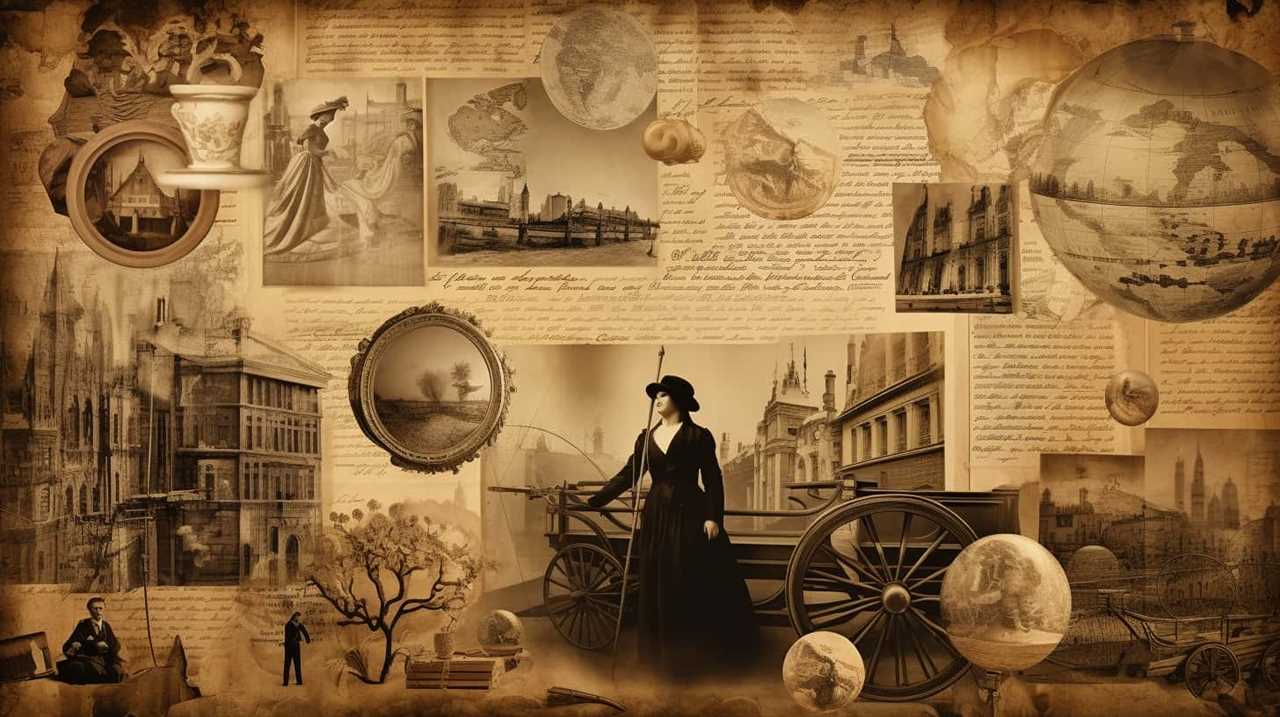
How Does ‘Battlestar Galactica’ Navigate Moral Ambiguity and Challenge Traditional Notions of Right and Wrong?
In ‘Battlestar Galactica,’ we navigate moral ambiguity and challenge traditional notions of right and wrong. By exploring ethical dilemmas and raising ethical questions, the show reflects technological advancements and depicts genetic engineering concerns.
How Do Sci-Fi Series Portray Ethical Quandaries on Screen?
Sci-fi series often mirror our world’s complexities, delving into dilemmas of existence and humanity. They reflect on why scifi series explore morality, pushing boundaries to question ethics amidst alien encounters and artificial intelligence, forcing viewers to confront the profound consequences of technology’s unchecked evolution.
Conclusion
As we journey through the vast universe of science fiction series, we’re confronted with the intricate tapestry of ethical quandaries. Like celestial bodies colliding, these shows force us to question our moral compasses and ponder the consequences of our actions.
From the twisted reflections in ‘Black Mirror’ to the philosophical riddles of ‘The Matrix’, these narratives push the boundaries of our imagination, inviting us to explore the boundless landscape of ethical dilemmas.
In this cosmic voyage, we’re reminded that the stars of our conscience guide our choices in this ever-evolving universe.
Lauren’s talent in writing is matched by her passion for storytelling. Her love for books and deep understanding of culture and entertainment add a distinct flavor to her work. As our media and press contact, Lauren skillfully bridges the gap between afterQuotes and the broader media landscape, bringing our message to a wider audience.
TV Shows Quotations
Laugh it Up: Top Saturday Night Live One-Liners Revealed

Throughout the years, Saturday Night Live (SNL) has been a cornerstone of comedic brilliance, providing a continuous flow of unforgettable moments that have brought joy to our lives. With its iconic characters and hilarious sketches, SNL has always pushed the boundaries of comedy, captivating audiences week after week.
In this article, we dive into the world of SNL one-liners and reveal the top comedic gems that have left us in stitches. From clever quips to side-splitting punchlines, these iconic SNL quotes have carved a special place in our hearts and define the very essence of the show.
Key Takeaways:
- SNL has been a comedic powerhouse for decades, delivering memorable one-liners.
- From iconic characters to hilarious sketches, SNL continues to entertain audiences.
- These top SNL one-liners showcase the show’s comedic brilliance and cultural impact.
- Prepare to laugh out loud as we unveil the most memorable SNL quotes.
- Experience the magic of SNL’s comedic genius through these timeless one-liners.
The Best SNL Skits of All Time
Saturday Night Live (SNL) has been a cultural phenomenon for decades, delivering hilarious skits and unforgettable one-liners that have become part of comedy history. From iconic characters to surprising twists, SNL has entertained audiences with its unique brand of humor. In this section, we explore some of the best SNL skits of all time, filled with memorable jokes and must-know one-liners that continue to make us laugh.
1. “More Cowbell”
One of SNL’s most beloved skits, “More Cowbell” features Christopher Walken as a music producer and Will Ferrell as the enthusiastic cowbell player. The sketch parodies the recording session for Blue Öyster Cult’s song “Don’t Fear the Reaper,” with Ferrell’s character demanding more cowbell in the song. The line “I gotta have more cowbell!” has become a cultural catchphrase, and the skit is remembered for its absurdity and comedic timing.
2. “Celebrity Jeopardy”
“Celebrity Jeopardy” is a recurring sketch that showcases hilarious celebrity impersonations and witty banter. Hosted by Alex Trebek, played by Will Ferrell, the skit features contestants such as Sean Connery, played by Darrell Hammond, who constantly misinterprets the answers and mocks Trebek. The witty exchanges and memorable one-liners, like Connery’s famous line “Suck it, Trebek!” have made this skit a fan favorite.
| SNL Skit | Memorable One-Liner |
|---|---|
| “More Cowbell” | “I gotta have more cowbell!” |
| “Celebrity Jeopardy” | “Suck it, Trebek!” |
| “Matt Foley: Motivational Speaker” | “Well, la-dee-frickin’-da!” |
3. “Matt Foley: Motivational Speaker”
Chris Farley’s portrayal of Matt Foley, a motivational speaker with a hilariously dysfunctional life, is an SNL classic. Foley’s intense delivery and physical comedy bring the skit to life, and his catchphrase “Well, la-dee-frickin’-da!” has become a memorable one-liner that perfectly captures the character’s sarcastic tone.
These are just a few examples of the best SNL skits that have left a lasting impression on audiences. Whether it’s memorable one-liners, hilarious characters, or unexpected twists, SNL continues to provide us with laughter and entertainment.
The Absurd Brilliance of Will Forte’s Spelling Bee
When it comes to showcasing absurdity and brilliance in a single sketch, Will Forte’s portrayal of a man competing in a spelling bee on Saturday Night Live (SNL) takes the cake. This underrated gem has become one of the most memorable and hilarious moments in SNL history. As Forte’s character is asked to spell the word “business,” he throws out a string of random letters, including a dozen Qs in a row. It’s a moment that defies logic and leaves the audience in stitches.
This SNL skit perfectly captures Forte’s knack for delivering lines with impeccable timing and a commitment to pure comedic chaos. From the moment he confidently spouts out letters that have no relation to the word at hand, it becomes clear that this sketch is going to be a masterclass in absurdity. Forte’s deadpan expression and unwavering dedication to his erroneous spelling make it impossible not to burst into laughter.
What makes this skit even more remarkable is the way it showcases the brilliance of SNL’s writing and comedic execution. The juxtaposition of a seemingly ordinary spelling bee with Forte’s nonsensical spelling choices creates a level of hilarity that is unmatched. The audience is left questioning how such a seemingly simple task can turn into a sidesplitting spectacle.
“Forte’s portrayal of a man competing in a spelling bee is one of the most underrated and brilliant sketches in SNL history.”
Will Forte’s spelling bee sketch is a testament to SNL’s ability to find humor in the most unexpected places. It’s a reminder that sometimes the most absurd moments can elicit the biggest laughs. This sketch, with its nonsensical spelling and Forte’s unmatched comedic talent, has solidified its place as one of the best SNL one-liners that reveal the true genius of the show.
The Brilliance of Will Forte’s Spelling Bee Sketch
| Key Elements | Description |
|---|---|
| Sketch Title | Will Forte’s Spelling Bee |
| Main Character | Will Forte |
| Setting | A spelling bee competition |
| Memorable Moment | Throwing out a string of random letters, including a dozen Qs in a row |
| Comedic Style | Absurdity, deadpan delivery |
The brilliance of Will Forte’s spelling bee sketch lies in its ability to take a seemingly mundane scenario and transform it into a side-splitting display of comedic genius. With Forte’s impeccable timing and unwavering commitment to absurdity, this SNL skit has left an indelible mark on the show’s history. It showcases the true brilliance of SNL in finding humor in the most unexpected places and reminds us of the sheer joy that comes from embracing the absurd.
Adam Driver’s Career Day
Adam Driver’s career day sketch on SNL is a hilarious and memorable showcase of his comedic talent. In this skit, Driver portrays the eccentric and over-the-top character of an elderly father during a high school career day. His performance is a perfect blend of physical comedy, exaggerated facial expressions, and impeccable comedic timing, making it one of the standout moments in SNL history.
Throughout the sketch, Driver’s character, an oil baron, delivers a series of uproarious one-liners that have become fan favorites. From his overzealous enthusiasm for petroleum-based products to his absurd stories about his wild adventures in the world of oil, Driver’s comedic delivery and commitment to the character’s quirks bring the sketch to life.
The humor in this sketch lies in the contrast between Driver’s larger-than-life character and the mundane setting of a high school career day. As the sketch progresses, Driver’s character becomes increasingly unhinged, culminating in a side-splitting meltdown that leaves the audience in stitches. His ability to fully commit to the absurdity of the situation and deliver his lines with utmost seriousness is a testament to his comedic prowess.
Driver’s performance in the career day sketch is a masterclass in comedic acting. His commitment to the character, impeccable timing, and knack for delivering hilarious one-liners make this sketch an unforgettable SNL moment.
Adam Driver’s career day sketch on SNL is a prime example of the show’s ability to create comedic gold. It showcases Driver’s talent as a versatile actor and highlights the power of a well-written and expertly performed one-liner. This sketch is a must-watch for anyone looking for a good laugh and a reminder of why SNL has remained a cultural phenomenon for decades.
John Mulaney’s Diner Lobster
John Mulaney’s sketch, “Diner Lobster,” takes a simple idea and transforms it into a hilarious musical production. The premise involves a clueless patron of a diner ordering a lobster, which then launches into a Les Misérables style musical number. This unexpected twist on a classic skit has become a fan favorite and inspired several sequels.
The brilliance of “Diner Lobster” lies in its absurdity and execution. Mulaney’s writing and performance, combined with the talented cast, bring the sketch to life in a way that only SNL can. From the catchy songs to the over-the-top costumes, every element adds to the comedic value of the skit.
This iconic SNL sketch showcases the show’s ability to take everyday situations and turn them into comedic gold. The juxtaposition of a mundane dining experience with a grand musical spectacle creates a hilarious contrast that captures the essence of SNL humor. “Diner Lobster” is a shining example of why SNL has remained a comedy institution for decades.
Hilarious Saturday Night Live Moments
Norm MacDonald’s sketch, “Cobras & Panthers,” stands as one of the most memorable and hilarious moments in Saturday Night Live history. The skit follows a 1950s street gang engaged in a West Side Story-like street fight, complete with singing and dancing. However, MacDonald’s character remains utterly perplexed by the concept of breaking into song in the midst of a brawl. His deadpan delivery of the line, “How’d you come up with a song so fast?” adds a layer of comedic brilliance to the sketch, resulting in uproarious laughter from the audience.
In this hilarious SNL segment, Norm MacDonald perfectly showcases his unique sense of humor and impeccable timing. His portrayal of a confused gang member adds an additional layer of absurdity and highlights his comedic genius. “Cobras & Panthers” has become an iconic sketch, capturing the essence of SNL’s ability to push boundaries and create unforgettable comedic moments.
“Cobras & Panthers” Highlights:
- Norm MacDonald’s deadpan delivery
- The juxtaposition of singing and dancing with a street fight
- The confusion of MacDonald’s character
“How’d you come up with a song so fast?”
Tina Fey’s Katie Couric Interviews Sarah Palin
In one of the most iconic Saturday Night Live moments, Tina Fey’s portrayal of Republican politician Sarah Palin took the comedy world by storm. Fey’s spot-on impression captured Palin’s mannerisms and accent flawlessly, creating a hilarious parody that became instantly memorable. One of the standout skits featuring Fey as Palin is the “Katie Couric Interviews Sarah Palin” sketch.
“I can see Russia from my house!”
This famous quote, delivered by Fey as Palin in the sketch, became a pop culture sensation and a perfect example of SNL’s ability to satirize current events. The skit brilliantly lampoons Palin’s responses during the actual interview, highlighting her lack of foreign policy knowledge in a humorous and exaggerated way. Fey’s comedic timing and physical resemblance to Palin elevated the sketch to legendary status.
SNL Famous One-Liners
The “Katie Couric Interviews Sarah Palin” sketch encompasses the essence of SNL’s ability to create memorable one-liners that resonate with audiences. Fey’s comedic genius breathed life into Palin’s political persona, making it one of the best impressions in SNL history. The sketch not only showcased Fey’s talent but also solidified SNL’s reputation as a platform for clever satire and unforgettable comedy.
| SNL Famous One-Liners | Best Saturday Night Live Quotes | Iconic SNL Jokes |
|---|---|---|
| “I can see Russia from my house!” | “Live from New York, it’s Saturday Night!” | “More cowbell!” |
| “Well, isn’t that special?” | “Schweddy Balls” | “Cheeseburger, cheeseburger, cheeseburger!” |
| “You’re gonna like the way you look. I guarantee it.” | “Colonel Angus” | “The Californians” |

SNL has a rich history of producing famous one-liners that have become ingrained in popular culture. From catchphrases like “Live from New York, it’s Saturday Night!” to memorable sketches like “More cowbell!” and “Schweddy Balls,” SNL has consistently delivered hilarious and iconic jokes that stand the test of time. Tina Fey’s portrayal of Sarah Palin and the “Katie Couric Interviews Sarah Palin” sketch is just one example of SNL’s ability to create memorable and quotable moments.
SNL Comedy Skit Quotes: Unforgettable One-Liners
Saturday Night Live (SNL) has produced some of the most memorable comedy skits in television history. From classic characters to unexpected twists, the show has given us countless iconic one-liners that continue to make us laugh. In this section, we explore some of the most popular SNL one-liners that have become part of comedy folklore.
The Land of Misfit Toys: A Collection of SNL One-Liners
As we dive into the world of SNL comedy skits, let’s pay homage to the unforgettable one-liners that have delighted audiences for years. Here are some of the classic SNL comedy skit quotes that have become part of our comedic lexicon:
“More cowbell!” – Christopher Walken
“Well, isn’t that speeecial?” – The Church Lady
“What is love?” – The Roxbury Guys
These quotes have transcended their respective skits and have been referenced and parodied in pop culture time and time again. Whether it’s Will Ferrell’s demand for more cowbell or Dana Carvey’s condescending observation as The Church Lady, these one-liners have become embedded in our collective memory.
A Table of Classic SNL One-Liners
| Sketch | One-Liner |
|---|---|
| The Blues Brothers Debut | “We’re on a mission from God.” |
| Tina Fey’s Katie Couric Interviews Sarah Palin | “I can see Russia from my house!” |
| John Mulaney’s Diner Lobster | “What’s a metaphor?” |
This table showcases just a few of the classic SNL one-liners that have become ingrained in our comedic consciousness. Each skit and its accompanying one-liner offers a unique and hilarious perspective that continues to entertain audiences to this day.
In summary, SNL comedy skit quotes have provided us with endless laughter over the years. Whether it’s a catchphrase, a clever observation, or a perfectly timed punchline, these one-liners have left an indelible mark on the world of comedy. As we revisit these classic SNL moments, we can’t help but be reminded of the show’s enduring legacy and its ability to make us laugh.
Hilarious SNL Moments with Martin Short’s A Christmas Carol Skit
Martin Short’s comedic genius shines in his portrayal of Scrooge in the SNL skit “A Christmas Carol.” This hilarious rendition takes Charles Dickens’ classic tale and adds a comedic twist that will leave audiences in stitches. Short’s impeccable timing and physical comedy make this skit a memorable moment in SNL history.
In this skit, after Scrooge’s ghostly encounters, he attempts to do good by tossing coins down to the people on the street. However, each attempt ends in disaster, with hilariously chaotic and unpredictable results. From mistaking a woman for a mannequin to accidentally causing a child to be launched into the air, Short’s comedic talent elevates this skit to new heights.
Throughout the skit, Short’s facial expressions and physical gestures add an extra layer of humor to the performance. His exaggerated movements and reactions to the disasters that unfold are comedic gold. With each mishap, the comedy escalates, creating a comedic snowball effect that keeps the audience laughing.
“I have never laughed so hard at a rendition of ‘A Christmas Carol.’ Martin Short truly brings Scrooge to life in the most hilarious way possible. It’s a must-watch for any SNL fan!” – SNL viewer
Not only does Short’s performance make this skit a standout moment in SNL history, but it also showcases the brilliance of the show’s writing and production. The combination of Short’s comedic talent and the clever concept of blending chaos with the traditional tale of “A Christmas Carol” result in a truly unforgettable and side-splitting performance.
So, if you’re looking for a good laugh and a fresh take on a classic story, be sure to check out Martin Short’s hilarious performance in the SNL skit “A Christmas Carol.” It’s a comedic masterpiece that will leave you in stitches.
Mike Myers’ Simon: Summer Drawings
Mike Myers’ portrayal of Simon, a British child sharing his disturbing and dark drawings, is both memorable and disturbing. The sketch showcases Myers’ unique sense of humor, with innocent lines like “cheeky monkey” juxtaposed with the disturbing nature of the drawings. This sketch captures the absurd and dark comedy that SNL is known for.
As Simon innocently presents his summer drawings, the audience is taken on a wild and unpredictable journey. The drawings range from an innocent ice cream cone to unsettling depictions of family members in compromising situations. Myers’ comedic timing and facial expressions enhance the hilarity of the sketch, leaving viewers both amused and slightly disturbed.
Simon: “This is a drawing of my dad. He’s just come in from work and he’s very drunk. You can tell because he’s dancing with two ladies, and on his sweater, it says, ‘I love beer.’”
The combination of innocent dialogue and dark subject matter is what makes this sketch stand out. Myers fully commits to the character of Simon, bringing his drawings to life with a childlike enthusiasm that borders on the creepy. The contrast between the innocent-looking Simon and the disturbing content of his drawings creates a comedic tension that keeps the audience engaged and entertained.
The Dark Side of Comedy
SNL has always pushed the boundaries of comedy, and the Simon sketch is a prime example of the show’s ability to tackle dark and taboo subjects in a humorous way. While some may find the content uncomfortable, it is this willingness to delve into the uncomfortable that sets SNL apart and allows it to tackle sensitive topics through the lens of comedy.
The Simon sketch may not be for everyone, but it demonstrates SNL’s commitment to taking risks and pushing boundaries. It is a reminder that comedy can be found in the most unexpected places and that sometimes the most uncomfortable topics can be approached with humor.
The Blues Brothers Debut
The Blues Brothers, played by Dan Aykroyd and John Belushi, made their debut on SNL in 1978. With their high-energy performances and soulful music, they captured the hearts of audiences. While the movie version of The Blues Brothers is well-known, their original SNL appearances showcased their musical talent and comedic chemistry.
In their sketches, The Blues Brothers performed iconic songs like “Soul Man” and “I Got Everything I Need (Almost).” Their energetic dance moves, signature suits, and memorable performances created a unique blend of comedy and music that resonated with viewers.
Not only did The Blues Brothers bring their musical talent to SNL, but they also showcased their improvisational skills through comedic banter and interactions with the host and other cast members. Their vibrant personalities and commitment to their characters made every appearance a memorable one.
The Legacy of The Blues Brothers on SNL
The Blues Brothers became one of SNL’s most beloved acts, and their success on the show catapulted them to international fame. Their performances laid the foundation for the 1980 cult classic film, The Blues Brothers, which further solidified their status as comedy legends.
Their unique blend of comedy, music, and energetic performances set the stage for future musical acts on SNL and influenced generations of performers. The Blues Brothers proved that an SNL sketch could transcend the small screen and become a cultural phenomenon.
Today, The Blues Brothers remain an iconic part of SNL’s history, exemplifying the show’s ability to showcase talented performers and create moments of pure entertainment. Their debut on SNL marked the beginning of a legacy that continues to inspire and entertain audiences to this day.
The Church Lady Debut
The Church Lady, played by Dana Carvey, made her debut on Saturday Night Live and quickly became one of the most iconic characters in the show’s history. Carvey’s portrayal of the holier-than-thou host of the “Church Chat” segment was both hilarious and biting, satirizing televangelists of the time. The Church Lady’s signature catchphrases, such as “Well, isn’t that special?” and “Could it be Satan?” have become ingrained in pop culture and are still quoted and referenced today.
The skits featuring The Church Lady were filled with zingers and comedic jabs at various celebrities and public figures. Carvey’s impeccable delivery and exaggerated mannerisms brought the character to life, making her an instant fan favorite. The Church Lady’s judgmental and self-righteous attitude provided a fresh and humorous perspective on societal and religious issues.
“Well, isn’t that special?”
The Church Lady’s impact extended beyond the confines of the SNL stage. Carvey’s portrayal was so popular that he even reprised the character in various television appearances, including guest spots on talk shows. The Church Lady’s success is a testament to Carvey’s comedic genius and the enduring appeal of larger-than-life characters that satirize societal norms.
Notable Quotes:
- “Well, isn’t that special?”
- “Could it be Satan?”
- “How convenient!”
- “Now, who could that be?”
Hilarious SNL Lines that Will Keep You Laughing
When it comes to delivering gut-busting comedy, Saturday Night Live (SNL) has never fallen short. Over the years, this iconic show has gifted us with countless classic moments and unforgettable one-liners. From absurd sketches to brilliant performances, SNL continues to be a wellspring of laughter for audiences. In this section, we dive into some of the funniest SNL punchlines and classic one-liners that have left viewers in stitches.
Adam Driver’s Career Day
In one side-splitting skit, talented actor Adam Driver brings hilarity to a high school career day as the eccentric father of Pete Davidson’s character. Driver’s portrayal of an oil baron is nothing short of comedic brilliance. With over-the-top antics and uproarious lines, he delivers a performance that will leave you in tears of laughter.
“I drink petroleum jelly from a Golden Girls shot glass.”
Tina Fey’s Katie Couric Interviews Sarah Palin
Tina Fey’s portrayal of former Republican vice presidential candidate Sarah Palin is legendary. Her impersonation of Palin in an interview with Katie Couric is a masterclass in comedy. Fey’s quick wit and impeccable timing make for some of the most iconic SNL jokes of all time.
“And I can see Russia from my house!”
The Roxbury Guys Debut
Will Ferrell and Chris Kattan’s portrayal of the clueless Roxbury Guys is an SNL sketch that has stood the test of time. These dimwitted characters, with their signature head-bobbing dance moves, never fail to elicit uproarious laughter. Their unforgettable catchphrase, “What is love?” has become an iconic SNL one-liner.
These hilarious SNL lines and punchlines are just a taste of the comedic brilliance that has made the show a cultural phenomenon. From classic sketches to unforgettable characters, SNL continues to be a powerhouse of laughter. So, sit back, relax, and get ready for more side-splitting moments that will keep you laughing for years to come.
The Roxbury Guys Debut
One of the most beloved and hilarious sketches in Saturday Night Live history is “The Roxbury Guys.” Portrayed by Will Ferrell and Chris Kattan, the dimwitted club-goers became instant fan favorites with their clueless attempts at impressing women and their signature head-bobbing dance moves. This iconic sketch debuted in the mid-1990s and quickly captured the hearts of viewers with its absurd humor and unforgettable one-liners.
The skit starts with Ferrell and Kattan’s characters, Doug and Steve Butabi, trying to charm their way into exclusive nightclubs, but always failing miserably. Their lack of self-awareness and exaggerated confidence make for a hilarious combination, as they stumble their way through conversations and encounters with women. The catchphrase “What is love?” became synonymous with the sketch, creating a lasting impact on SNL pop culture.
“Doug: You know, Steve, I gotta be honest with you. I’m not feelin’ so good. Steve: What’s wrong with you? Doug: I think I’m in love, Steve.”
The Legacy and Cultural Impact
The Roxbury Guys sketch became so popular that it eventually inspired a full-length film, “A Night at the Roxbury,” in 1998. While the movie received mixed reviews, it further solidified the characters’ place in comedy history and their enduring popularity among fans.
Will Ferrell and Chris Kattan’s comedic chemistry and commitment to their roles elevated “The Roxbury Guys” to legendary status. Their physical comedy, exaggerated mannerisms, and unforgettable catchphrases continue to be quoted and celebrated by fans to this day.
This sketch is a testament to the talent and creativity of the SNL cast and writers, showcasing their ability to create memorable characters and moments that stand the test of time. “The Roxbury Guys” will forever remain an iconic part of Saturday Night Live’s rich comedic legacy.
| Sketch | Main Cast | Year |
|---|---|---|
| The Roxbury Guys | Will Ferrell, Chris Kattan | 1996 |
| A Night at the Roxbury (film) | Will Ferrell, Chris Kattan | 1998 |
As seen in the table above, “The Roxbury Guys” sketch debuted in 1996 and eventually led to the release of the film “A Night at the Roxbury” in 1998. The success of the sketch and its enduring popularity among fans further solidified the comedic talents of Will Ferrell and Chris Kattan.
Whether it’s their iconic head-bobbing dance, their attempts at impressing women, or their unforgettable catchphrase “What is love?”, “The Roxbury Guys” sketch continues to bring laughter and joy to audiences, showcasing the comedic brilliance of Saturday Night Live.
Conclusion
Saturday Night Live, an iconic cultural phenomenon, has gifted us with countless moments of laughter and joy. From the comedic brilliance of characters like The Church Lady to the unforgettable sketches that have woven themselves into the fabric of our collective memory, SNL has brought us some of the funniest Saturday Night Live quotes ever uttered.
As we conclude our journey through the top Saturday Night Live one-liners revealed in this article, we are reminded of the sheer talent and wit that has graced the SNL stage over the years. These iconic SNL jokes have the power to bring a smile to our faces and lighten our hearts, making us grateful for the comedic genius that SNL consistently delivers.
So, whether you are a longtime fan who has grown up with the show or a newcomer discovering the brilliance of SNL for the first time, these top Saturday Night Live one-liners are here to remind us of the endless humor and joy that can be found within the world of sketch comedy.
Can Saturday Night Live One-Liners Offer Insight into Life’s Philosophical Journeys?
Saturday Night Live one-liners may not seem like a source for the best philosophical life quotes, but they can offer unique insights into life’s philosophical journeys. Sometimes, the most unexpected places can provide wisdom and perspective that can be applied to our own personal growth and experiences.
What Makes Saturday Night Live One-Liners Memorable in Comedy Culture?
Saturday Night Live has been a breeding ground for iconic comedy movie catchphrases stick. Characters like Wayne and Garth, the Church Lady, and Matt Foley have left a lasting impression on pop culture with their memorable one-liners. These catchphrases have become ingrained in comedy culture, demonstrating the lasting impact of SNL.
FAQ
What is Saturday Night Live (SNL)?
Saturday Night Live (SNL) is a renowned American television show that has been on the air since 1975. It features live comedy sketches, musical performances, and guest appearances by notable celebrities.
How long has SNL been on TV?
SNL has been on TV for over four decades, entertaining audiences with its unique brand of humor and satirical commentary.
Who are some of the most memorable SNL performers?
SNL has seen a multitude of talented performers throughout its history, including Will Ferrell, Eddie Murphy, Tina Fey, Bill Murray, and many more.
Are SNL skits scripted or improvised?
While SNL skits have a script, the performers often add their own improvisation to enhance the comedy and make each performance unique.
How many seasons of SNL have there been?
As of 2022, SNL is currently in its 48th season, with new episodes airing regularly on Saturday nights.
Are the musical performances on SNL live?
Yes, the musical performances on SNL are performed live by the artists or bands, providing an authentic and exciting element to the show.
Can I watch old episodes of SNL?
Yes, many classic SNL episodes are available for streaming on various platforms, allowing fans to revisit their favorite sketches and one-liners.
How are the hosts and musical guests chosen for each episode?
The selection of hosts and musical guests for each episode varies, but they are often chosen based on their current popularity and relevance in the entertainment industry.
Has any SNL sketch become a movie or TV show?
Yes, several SNL sketches have been adapted into movies and TV shows, including “The Blues Brothers,” “Wayne’s World,” and “Superstar,” to name a few.
How does SNL stay relevant after so many years?
SNL continuously evolves by incorporating current events and pop culture into its sketches, making it a satirical reflection of the times and ensuring its relevance with each new episode.
Fritz is a writer whose humor and wit infuse life into words. His creativity, combined with a profound love for the English language, makes him a unique voice at afterQuotes. Fritz’s engagement with books, culture, and social media adds depth to his contributions, making them resonate with our diverse audience.
TV Shows Quotations
Wisdom From Fantasy TV Show Characters

Welcome to our journey into the hidden wisdom of fantasy TV show characters! Beyond the flashy special effects and captivating plots, these characters hold valuable lessons you may not have realized.
In our quest for innovation, we have discovered a treasure trove of insightful and thought-provoking quotes from the likes of Tyrion Lannister, Gandalf, Daenerys Targaryen, Hermione Granger, Jon Snow, Cersei Lannister, Merlin, Katniss Everdeen, and even The Doctor.
These beloved characters have shared their unique perspectives on life, leadership, power, bravery, and the power of knowledge. Join us as we delve into the timeless wisdom of these extraordinary individuals, and uncover the lessons they have to teach us.
Key Takeaways
- Tyrion Lannister demonstrates resilience and resourcefulness in the face of adversity, teaching us that there’s always a way to overcome challenges.
- Gandalf emphasizes the value of humility and learning from others, reminding us that true innovation requires intelligence, creativity, and wisdom.
- Daenerys’ journey to power is filled with transformative moments, inspiring us to stand up for what we believe in and defy societal norms and expectations.
- Hermione Granger’s love for books and dedication to learning teaches us the importance of pursuing knowledge, critical thinking, and intellectual growth.
Tyrion Lannister’s Wise Words
In the TV show Game of Thrones, we can learn valuable lessons from Tyrion Lannister’s wise words. Tyrion, a character known for his intelligence and wit, often provides insights that transcend the fictional world of Westeros. One of the most prominent themes in Tyrion’s wisdom is his ability to navigate adversity with grace and wisdom.
Despite facing numerous challenges and being constantly underestimated due to his physical stature, Tyrion consistently demonstrates his resilience and resourcefulness. Tyrion’s wisdom in adversity teaches us that no matter how dire the circumstances may be, there’s always a way to overcome them. He shows us the importance of using our intelligence and wit to find creative solutions, even when the odds seem stacked against us. Tyrion’s political strategy is another aspect of his wisdom that can be applied to our own lives. He’s a master manipulator, using his knowledge of human nature and his keen understanding of power dynamics to outmaneuver his opponents.
As we transition to the subsequent section about Gandalf’s guidance, we can see how these lessons from Tyrion Lannister can be complemented by the wisdom of other fictional characters. Just like Tyrion, Gandalf from The Lord of the Rings series offers valuable insights into the power of wisdom and leadership. Let’s delve into Gandalf’s guidance and see how it can further enrich our understanding of the lessons we can learn from fantasy TV show characters.
Gandalf’s Guidance
Continuing the exploration of valuable insights from fantasy TV show characters, let’s now delve into Gandalf’s guidance.
Gandalf, the wise wizard from J.R.R. Tolkien’s ‘The Lord of the Rings,’ offers sage advice that resonates with the power of wisdom.
One of Gandalf’s most profound teachings is the importance of perseverance and never underestimating the impact of small actions. As he famously said, ‘Even the smallest person can change the course of the future.’ This speaks directly to the innovative mindset, reminding us that every individual has the potential to make a significant difference.
Gandalf also emphasizes the need to confront our fears and embrace the unknown. He encourages us to step out of our comfort zones and to embrace challenges, for it’s through these experiences that we grow and discover our true potential. His words remind us that innovation often requires taking risks and pushing the boundaries of what’s known.
Furthermore, Gandalf teaches us the value of humility and the importance of learning from others. He acknowledges that wisdom can be found in unexpected places and that we should always be open to new perspectives. This willingness to listen and collaborate fosters innovation by allowing us to tap into the collective intelligence of those around us.
Gandalf’s sage advice reminds us that true innovation requires not only intelligence and creativity but also the power of wisdom. By embracing perseverance, facing our fears, and remaining open to new ideas, we can unlock our innovative potential and shape a better future.
Daenerys Targaryen’s Empowering Quotes
Let’s now delve into the empowering quotes of Daenerys Targaryen, extending our exploration of valuable insights from fantasy TV show characters. Daenerys’ journey to power is a remarkable one, filled with trials, triumphs, and transformative moments. Her leadership style, characterized by her determination, compassion, and unwavering belief in her cause, has inspired many.
One of Daenerys’ most powerful quotes comes from her iconic speech in the city of Astapor: ‘I will take what’s mine with fire and blood.’ These words encapsulate her unwavering determination to reclaim her birthright and liberate the oppressed. They remind us of the importance of standing up for what we believe in, even in the face of seemingly insurmountable challenges.
Another empowering quote from Daenerys is when she declares, ‘I am not a queen. I’m a Khaleesi.’ This statement highlights her refusal to be defined by societal norms and expectations. It reminds us that true power comes from within, and that titles and labels don’t determine our worth.
In conclusion, Daenerys Targaryen’s empowering quotes reflect her journey to power and her unique leadership style. Her words inspire us to embrace our own strength, fight for justice, and defy the limitations placed upon us.
Now, let’s move on to explore Hermione Granger’s intellectual insights.
Hermione Granger’s Intellectual Insights
When it comes to intellectual insights, there’s no character quite like Hermione Granger. Her bookish brilliance and insatiable curiosity make her a role model for all aspiring intellectuals.
From her encyclopedic knowledge to her unwavering dedication to learning, Hermione teaches us valuable lessons about the power of education and the importance of critical thinking.
Hermione’s Bookish Brilliance
We are continually amazed by the intellectual insights that Hermione Granger, from the fantasy TV show, brings to the table with her bookish brilliance. Hermione’s love for books is evident in her constant pursuit of knowledge and intellectual growth. Here are three key aspects of Hermione’s bookish brilliance:
![]()
- Unquenchable thirst for knowledge: Hermione’s insatiable curiosity and hunger for learning drive her to read and study tirelessly. Her dedication to expanding her intellectual horizons is an inspiration to all who value continuous growth.
- Critical thinking skills: Hermione’s extensive reading allows her to approach problems with a well-informed and logical mindset. She’s adept at analyzing situations, making connections, and finding innovative solutions.
- Book smarts as a foundation: Hermione’s vast knowledge, acquired through her love for books, serves as a solid foundation for her intellectual prowess. She’s able to draw upon this knowledge to navigate through various challenges and contribute valuable insights.
Hermione’s bookish brilliance not only showcases the power of intellectual growth but also emphasizes the importance of cultivating a deep love for books.
Transitioning into the next section, let’s explore the intellectual lessons we can learn from Hermione.
Intellectual Lessons From Hermione
Throughout our journey exploring the wisdom of fantasy TV show characters, Hermione Granger’s intellectual insights have proven to be invaluable. Hermione’s character is known for her exceptional intelligence and quick thinking, making her a role model for intellectual growth.
One of the key lessons we can learn from Hermione is the importance of critical thinking strategies. She consistently demonstrates her ability to analyze situations, gather information, and make well-informed decisions. Hermione’s logical reasoning and problem-solving skills serve as a reminder of the power of intellectual curiosity and the need to challenge assumptions.
She teaches us to question everything and seek knowledge beyond what’s presented to us. By adopting Hermione’s approach to critical thinking, we can foster our own intellectual growth and push the boundaries of innovation.
Jon Snow’s Lessons in Leadership
When it comes to leadership, Jon Snow from the fantasy TV show Game of Thrones has taught us valuable lessons.
One of the most important lessons is the power of loyalty and trust. Jon Snow always prioritizes the well-being of his people and earns their trust through his unwavering loyalty.
Additionally, he showcases the ability to make tough decisions, even when they’re unpopular or may have personal consequences.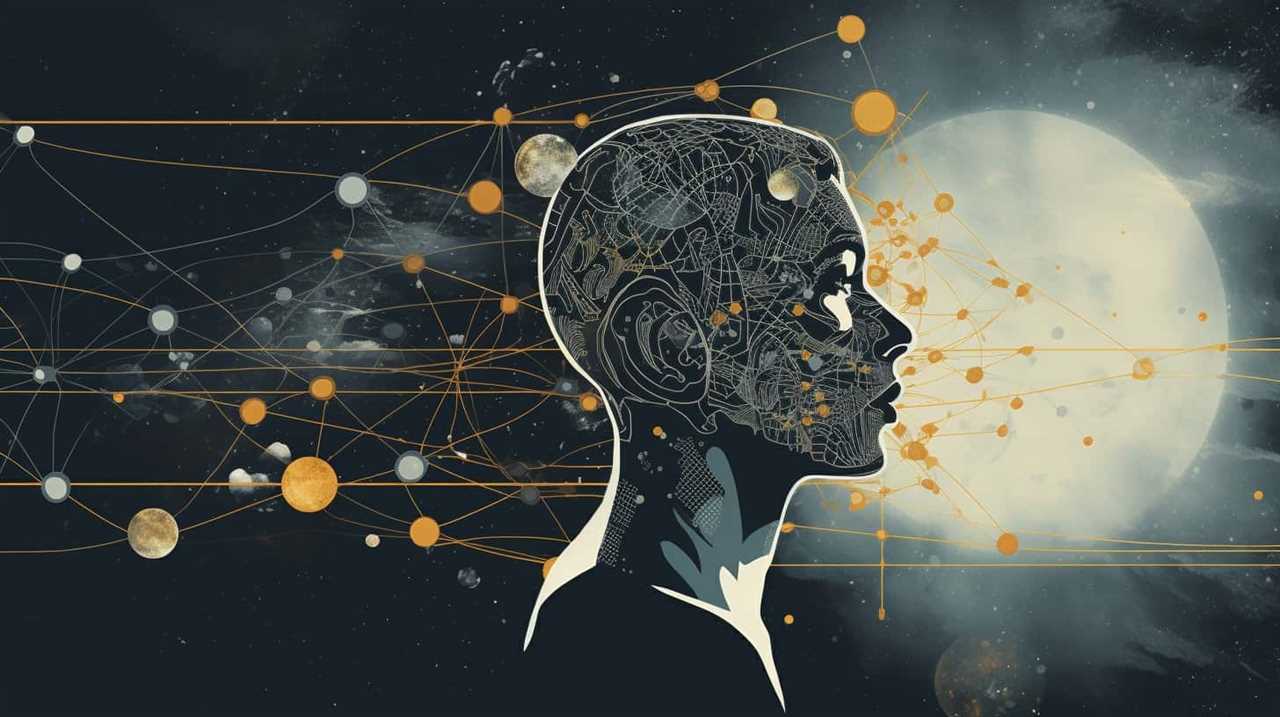
Lastly, Jon Snow leads by example, demonstrating bravery, resilience, and a strong sense of justice.
These three key points highlight the qualities that make Jon Snow an exceptional leader and provide valuable insights for those seeking to lead effectively.
Loyalty and Trust
In the realm of leadership, loyalty and trust are crucial for success. Building strong relationships based on honesty and transparency is essential in gaining the trust and loyalty of your team.
Jon Snow, a character from the fantasy TV show ‘Game of Thrones,’ exemplifies the importance of these qualities in leadership.![]()
- Building strong relationships:
- Establishing open communication channels
- Fostering a culture of collaboration and support
- Investing time in getting to know your team members on a personal level
- The importance of honesty:
- Being transparent about goals, expectations, and challenges
- Admitting mistakes and taking responsibility for them
- Providing constructive feedback and guidance
- Transparency breeds trust:
- Sharing information openly and consistently
- Involving team members in decision-making processes
- Honoring commitments and delivering on promises
Making Tough Decisions
For leaders, making tough decisions is a test of character and a challenge that we must face head-on. In the world of fantasy TV shows, Jon Snow from ‘Game of Thrones’ provides valuable lessons in leadership when it comes to navigating difficult choices and moral dilemmas.
Throughout the series, Jon is constantly faced with challenging situations that require him to make decisions that have far-reaching consequences. Whether it’s deciding to ally with former enemies or sacrificing his own desires for the greater good, Jon consistently demonstrates the ability to weigh the options and make choices that align with his values and the needs of his people. His ability to make tough decisions with integrity and empathy sets an example for leaders everywhere.
Transitioning into the next section, let’s explore the importance of leading by example.
Leading by Example
As leaders, we can draw inspiration from Jon Snow’s exemplary leadership style, particularly in the way he leads by example. Jon Snow, the beloved character from the fantasy TV show, Game of Thrones, consistently inspires others through his actions.![]()
Here are three key lessons we can learn from Jon Snow’s approach to leading by example:
- Integrity: Jon Snow consistently upholds his principles, even in the face of adversity. He demonstrates the importance of staying true to one’s beliefs and values, inspiring others to do the same.
- Selflessness: Jon Snow puts the needs of others before his own, exemplifying the qualities of a servant leader. By prioritizing the well-being of his people, he inspires loyalty and dedication from those around him.
- Courage: Jon Snow fearlessly faces challenges head-on, displaying a brave and unwavering determination. His bravery inspires others to push beyond their own limits and overcome obstacles.
Arya Stark’s Lessons in Perseverance
Arya Stark’s lessons in perseverance have taught us the power of resilience and determination. Throughout the fantasy TV show Game of Thrones, Arya faces countless challenges and obstacles, yet she never gives up. Her unwavering determination to survive and seek justice is truly inspiring.
One of the key lessons we can learn from Arya is the importance of adapting to change. In the face of adversity, Arya constantly evolves and learns new skills to overcome her enemies. This adaptability is a testament to her resilience and refusal to be defeated.
| Lesson | Description | Application |
|---|---|---|
| Embrace Fear | Arya faces her fears head-on, using them as fuel for her perseverance. | We can confront our fears and turn them into motivation to achieve our goals. |
| Never Underestimate Yourself | Arya proves time and again that she is capable of more than anyone expects. | We should believe in our own abilities and push ourselves beyond our perceived limits. |
| Find Strength in Solitude | Arya spends much of her journey alone, relying solely on her own strength and resourcefulness. | We can learn to rely on ourselves and find inner strength in times of solitude. |
Arya Stark’s journey teaches us that perseverance and resilience are essential qualities in the pursuit of our goals. By embracing fear, believing in ourselves, and finding strength in solitude, we can overcome any obstacle that stands in our way. Let Arya’s lessons inspire us to be resilient and determined in our own lives.
Dumbledore’s Life Lessons
Dumbledore’s life lessons offer valuable wisdom for navigating the challenges we face. His wisdom transcends the boundaries of fiction and can be applied to our own lives. Here are three life lessons we can learn from Dumbledore:
- Embrace the Power of Love:
- Dumbledore consistently emphasizes the importance of love, even in the face of darkness and despair. He believes that love is the most powerful force in the world and that it has the ability to conquer even the darkest of times.
- Love teaches us compassion, understanding, and acceptance. It reminds us of our interconnectedness and the importance of treating others with kindness and respect.
- Embrace Vulnerability and Imperfection:
- Dumbledore recognizes that vulnerability and imperfection are part of the human experience. He encourages us to embrace our flaws and learn from our mistakes.
- By acknowledging our vulnerabilities, we open ourselves up to growth and personal development. It allows us to connect with others on a deeper level and fosters empathy and understanding.
- Embrace the Power of Knowledge:
- Dumbledore is known for his vast knowledge and thirst for learning. He teaches us the importance of education and the power of knowledge.
- By seeking knowledge, we expand our perspectives and gain a deeper understanding of the world around us. It empowers us to make informed decisions and navigate the challenges that come our way.
Dumbledore’s wisdom reminds us of the importance of love, vulnerability, and knowledge in our own lives. By embracing these lessons, we can navigate the challenges we face with resilience and grace.
Samwise Gamgee’s Unwavering Loyalty
One character whose unwavering loyalty offers valuable lessons is Samwise Gamgee from the fantasy TV show. Samwise’s unwavering loyalty is a testament to the power of friendship, and it serves as a reminder that true loyalty knows no bounds.
Throughout the show, Samwise consistently demonstrates his loyalty to his friend Frodo Baggins. Despite the treacherous and perilous journey they embark on, Samwise remains by Frodo’s side, offering unwavering support and encouragement. He never wavers in his commitment to Frodo’s mission, even when faced with seemingly insurmountable challenges.
Samwise’s unwavering loyalty teaches us the importance of standing by our friends, even in the face of adversity. It reminds us that true friendship is built on trust, support, and unwavering commitment. In a world that often values individualism and self-interest, Samwise’s loyalty is a refreshing reminder of the power of genuine friendship.
Samwise’s unwavering loyalty also highlights the transformative power of loyalty. It’s through his unwavering support that Samwise is able to help Frodo overcome his own doubts and fears. By staying true to his friend, Samwise becomes a source of strength and inspiration, ultimately playing a crucial role in the success of their mission.
Cersei Lannister’s Lessons in Power
Continuing from Samwise Gamgee’s unwavering loyalty, Cersei Lannister’s lessons in power provide valuable insights into the pursuit and preservation of authority. While some may argue that Cersei’s manipulation tactics were morally questionable, there’s no denying that her cunning and strategic thinking allowed her to rise to the top and maintain control over the Iron Throne. Here are three key lessons we can learn from Cersei’s journey:
- Master the art of manipulation: Cersei was a master manipulator, using her intelligence and wit to exploit the weaknesses of those around her. She understood the power of information and how to use it to her advantage. By carefully controlling the narrative, she was able to manipulate others into doing her bidding.
- Never underestimate your enemies: Cersei’s downfall came when she underestimated her enemies. She became overconfident in her own abilities and failed to see the bigger picture. It’s crucial to always be aware of potential threats and adapt your strategies accordingly. Hubris can be a fatal flaw.
- Learn from your mistakes: Despite her ultimate demise, Cersei’s journey teaches us the importance of learning from our mistakes. She made numerous errors in judgment throughout her reign, but she never stopped trying to regain control. It’s through reflection and self-improvement that we can grow as leaders.
Merlin’s Magical Wisdom
Merlin’s magical wisdom offers us invaluable insights into the world of sorcery and the power it holds. As we delve into the enchanting realm of Merlin, we discover two key lessons: mastering magic and embracing destiny.
In the TV show, Merlin serves as a powerful sorcerer and advisor to King Arthur. His knowledge and understanding of magic are unparalleled, making him a master in his craft. Through his teachings, we learn the importance of honing our skills and abilities to their fullest potential. Just like Merlin, we should strive to continuously improve and refine our magical abilities, pushing the boundaries of what we can achieve. By doing so, we can unlock new levels of power and tap into our true potential.
Merlin’s journey also teaches us about the significance of embracing our destiny. Throughout the series, he embraces his role as the protector and guide of Arthur, even in the face of great adversity. Merlin teaches us that destiny isn’t something to be feared or resisted, but rather something to be embraced and fulfilled. By accepting our own destinies, we can find purpose and meaning in our lives, and ultimately make a profound impact on the world around us.
Transitioning into the next section, we move from the magical realm of Merlin to the courageous world of Katniss Everdeen and her brave advice.
Katniss Everdeen’s Brave Advice
In the TV show, Katniss Everdeen imparts brave advice that resonates with viewers. Her journey from being a young tribute in the Hunger Games to becoming the symbol of hope and resilience for Panem inspires us to overcome adversity and fear.
Here is some of the brave advice Katniss Everdeen offers:
- Never give up: Despite the overwhelming odds against her, Katniss never gives up. She teaches us the importance of determination and perseverance in the face of challenges.
- Embrace your fears: Katniss shows us that bravery isn’t the absence of fear, but the ability to face it head-on. She encourages us to confront our fears and use them as stepping stones towards success.
- Find your purpose: Throughout the series, Katniss discovers her purpose in fighting against injustice. She reminds us to find our own purpose and use it as a driving force to overcome any obstacles.
Katniss Everdeen’s brave advice reminds us that bravery and resilience are essential qualities in navigating through life’s challenges. Her story teaches us that even in the darkest times, we’ve the power to rise above and create positive change. By overcoming adversity and fear, we can become the heroes of our own stories.
The Doctor’s Timeless Wisdom
The Doctor’s wisdom transcends time and space, guiding us through the universe’s infinite possibilities. As the protagonist of the long-running British TV show Doctor Who, the Doctor has shared countless nuggets of wisdom that resonate with audiences across generations. At the heart of the Doctor’s philosophy is the idea of embracing change and growth.
Throughout the show’s history, the Doctor constantly evolves, regenerating into a new form and personality. This serves as a powerful metaphor for the importance of embracing change in our own lives. The Doctor teaches us that change isn’t something to be feared, but rather an opportunity for growth and transformation.
In a world that’s constantly evolving, the Doctor’s philosophy reminds us of the need to adapt and be open to new experiences. By embracing change, we can learn from our mistakes, develop new skills, and explore new possibilities. The Doctor encourages us to step outside of our comfort zones and embrace the unknown.
Furthermore, the Doctor’s timeless wisdom encourages us to not only embrace change in our personal lives, but also to work towards positive change in the world around us. The Doctor is often portrayed as a champion of justice and equality, fighting against oppression and injustice. Through their actions, the Doctor inspires us to stand up for what’s right and work towards a better future for all.
Frequently Asked Questions
How Did Tyrion Lannister Become so Wise in the Game of Thrones?
Tyrion Lannister became so wise in the Game of Thrones due to his political strategies and his role as Hand of the Queen. By analyzing situations, thinking outside the box, and embracing innovation, he was able to navigate the complex political landscape and outwit his adversaries.
What Are Some of Gandalf’s Most Memorable Quotes From the Lord of the Rings?
Gandalf, with his wise counsel and unwavering presence, guided Frodo on a treacherous journey through Middle-earth. From "All we have to decide is what to do with the time that is given to us" to "Even the smallest person can change the course of the future," his words inspire us to embrace our own power and make a difference.
How Does Daenerys Targaryen Inspire and Empower Others in Game of Thrones?
Daenerys Targaryen’s leadership qualities and journey to self-discovery inspire and empower others in Game of Thrones. Her determination, compassion, and ability to overcome adversity make her a powerful force, motivating others to embrace their own strength and fight for what they believe in.
What Intellectual Insights Does Hermione Granger Bring to the Harry Potter Series?
Hermione Granger’s impact on the Harry Potter series is profound. She not only showcases her intellectual prowess but also challenges societal norms, making her a feminist icon. Her character brings intellectual insights and inspires us to question the status quo.
How Does Jon Snow’s Leadership Style Evolve Throughout Game of Thrones?
How does Jon Snow’s leadership style evolve throughout Game of Thrones? From being a reluctant leader to embracing his true identity, Jon Snow navigates leadership challenges with humility, resilience, and a commitment to justice.
Conclusion
In the realm of fantasy TV shows, characters haven’t only entertained us but also imparted valuable wisdom.
From Tyrion Lannister’s clever insights to Daenerys Targaryen’s empowering quotes, these characters have left a lasting impact on us.
Gandalf’s guidance, Hermione Granger’s intellectual insights, and Jon Snow’s lessons in leadership have taught us valuable life lessons.
Even the cunning Cersei Lannister, the magical Merlin, the brave Katniss Everdeen, and the timeless wisdom of The Doctor have all contributed to our understanding of the world.
These characters will forever hold a special place in our hearts, reminding us of the power of imagination and the lessons we can learn from the most unexpected sources.
Lauren’s talent in writing is matched by her passion for storytelling. Her love for books and deep understanding of culture and entertainment add a distinct flavor to her work. As our media and press contact, Lauren skillfully bridges the gap between afterQuotes and the broader media landscape, bringing our message to a wider audience.
TV Shows Quotations
Wisdom Whispers: Fantasy Series Characters’ Most Inspiring Quotes
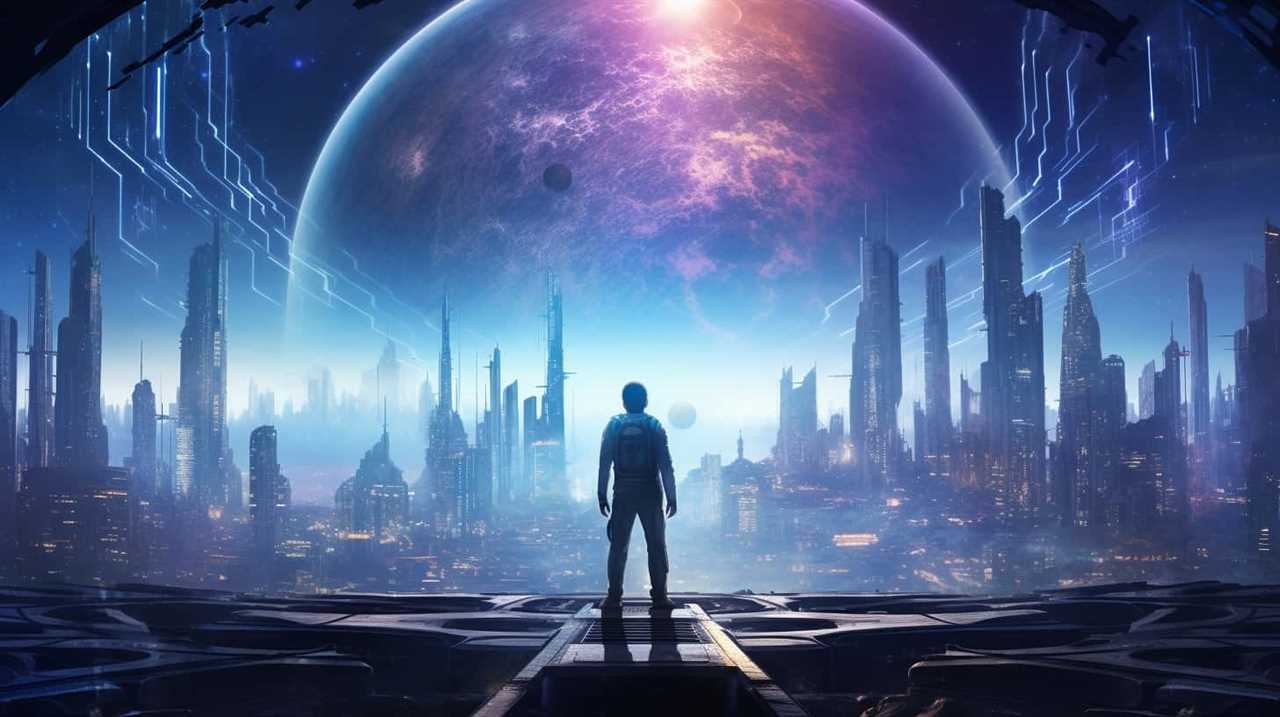
In the world of fantasy series, there is a treasure trove of wisdom tucked away in the dialogue of our favorite characters. They not only touch our hearts, but also ignite our hunger for creativity and motivation.
Welcome to ‘Wisdom Whispers: Fantasy Series Characters’ Most Inspiring Quotes.’ Here, we delve into the profound insights of iconic figures such as Gandalf, Hermione Granger, Tyrion Lannister, Aragorn, Daenerys Targaryen, Merlin, Legolas, Sansa Stark, and Harry Potter.
Through their sharp wit, poetic wisdom, and empowering words, they guide us on a journey of self-discovery and resilience. Join us as we explore the echoes of wisdom that resonate through the pages of these fantastical tales.
Key Takeaways
- The wisdom and quotes from fantasy series characters have a significant impact on readers, inspiring and empowering them.
- Daenerys Targaryen’s empowering quotes have a captivating effect on audiences, leaving a lasting impact and inspiring belief in oneself and striving for greatness.
- Aragorn’s inspiring words emphasize the importance of resilience, selflessness, unwavering commitment to goals, and the idea that true strength comes from within.
- Sansa Stark teaches valuable lessons in resilience, including the power of patience and observation, learning from mistakes and experiences, the importance of inner strength, and growth and transformation through hardships.
Gandalf’s Words of Wisdom
One of Gandalf’s most iconic quotes is ‘All we’ve to decide is what to do with the time that’s given to us.’ This quote perfectly encapsulates Gandalf’s wisdom in Middle-earth and his impact on the Fellowship. Gandalf, the wise and powerful wizard, serves as a mentor and guide to the members of the Fellowship throughout their perilous journey. His words of wisdom inspire them to make the most of their time and to take action in the face of adversity.
Gandalf’s wisdom extends beyond his memorable quotes. He possesses a deep understanding of Middle-earth’s history, its peoples, and its dangers. His knowledge and insights prove invaluable in navigating the treacherous path to Mount Doom. Gandalf’s impact on the Fellowship is immeasurable, as he provides guidance, reassurance, and motivation to the group. His wisdom and experience serve as a beacon of hope in their darkest moments.
Furthermore, Gandalf’s wisdom challenges the Fellowship to think creatively and innovatively. He encourages them to find unconventional solutions to their problems, to think outside the box, and to embrace their unique strengths. Gandalf’s wisdom not only guides the Fellowship through their quest, but also inspires them to become better versions of themselves.
In the end, it’s Gandalf’s words of wisdom that shape the destiny of the Fellowship and ultimately lead to their success.
Hermione Granger’s Wise Insights
Hermione Granger’s wise insights greatly contribute to the wisdom found within the pages of the fantasy series. Her academic excellence is evident throughout the books, as she consistently displays intelligence, resourcefulness, and a thirst for knowledge. Hermione’s loyalty and bravery are also key aspects of her character that make her insights all the more inspiring.
One of Hermione’s most memorable quotes is, ‘Books! And cleverness! There are more important things – friendship and bravery.’ This quote encapsulates Hermione’s belief that while knowledge is valuable, it should never overshadow the importance of personal connections and acts of courage. It serves as a reminder to readers that true wisdom isn’t just about what you know, but how you use that knowledge to make a positive difference in the world.
Moreover, Hermione’s insights often highlight the importance of standing up for what’s right, even in the face of adversity. She reminds us that bravery isn’t the absence of fear, but rather the ability to overcome it. For example, when she says, ‘Fear of a name only increases fear of the thing itself,’ she encourages readers to confront their fears head-on and not be controlled by them.
Tyrion Lannister’s Sharp Wit
When discussing the sharp wit of Tyrion Lannister, it’s evident that his clever comebacks and sarcastic remarks add a unique and entertaining aspect to the fantasy series. Tyrion Lannister, played by Peter Dinklage in the television adaptation of George R.R. Martin’s ‘A Song of Ice and Fire’ series, is known for his quick thinking and sharp tongue. His clever comebacks not only entertain viewers but also showcase his strategic thinking.
Throughout the series, Tyrion’s wit serves as a defense mechanism against the constant scrutiny he faces due to his dwarfism. His ability to use humor to deflect insults and navigate treacherous situations is truly remarkable. For example, when accused of being a ‘demon monkey’ by his sister Cersei, Tyrion responds with a smirk and says, ‘I’m not questioning your honor, Lord Janos. I’m denying its existence.’ This witty response not only shuts down his accuser but also highlights Tyrion’s intelligence and ability to think on his feet.![]()
Tyrion’s strategic thinking is also evident in his sarcastic remarks. He uses sarcasm as a weapon, often to expose the hypocrisy and foolishness of others. One of his most memorable lines comes when he says, ‘I drink and I know things.’ This seemingly flippant remark not only showcases his love for wine but also hints at his ability to gather information and make informed decisions.
Aragorn’s Inspirational Speeches
During the epic battles and moments of uncertainty in the fantasy series, Aragorn’s inspirational speeches never fail to ignite a sense of courage and determination within us. Aragorn, portrayed by Viggo Mortensen in "The Lord of the Rings," possesses exceptional leadership qualities that make him a beloved character and a role model for many. His speeches are not only powerful and moving, but they also showcase his ability to inspire others to overcome adversity and strive for greatness.
| Aragorn’s Inspirational Speeches |
|---|
| "There is always hope." |
| "I will not let the White City fall, nor our people fail." |
| "This day we fight!" |
| "I do not fear death." |
| "For Frodo!" |
These quotes exemplify Aragorn’s unwavering determination, unwavering courage, and unwavering loyalty. He instills hope in the hearts of his comrades, reminding them that even in the darkest of times, there is always a glimmer of light. Aragorn’s leadership qualities shine through his speeches, as he takes charge and motivates his allies to stand strong in the face of danger. His unwavering belief in the cause and his willingness to sacrifice himself for the greater good make him a true inspiration.
As a role model, Aragorn teaches us the importance of resilience, selflessness, and unwavering commitment to our goals. His speeches remind us that even when the odds seem insurmountable, true strength comes from within, and it is our duty to fight for what we believe in. Aragorn’s words resonate with us long after we finish watching the series, inspiring us to be brave, to embrace challenges, and to strive for greatness in our own lives.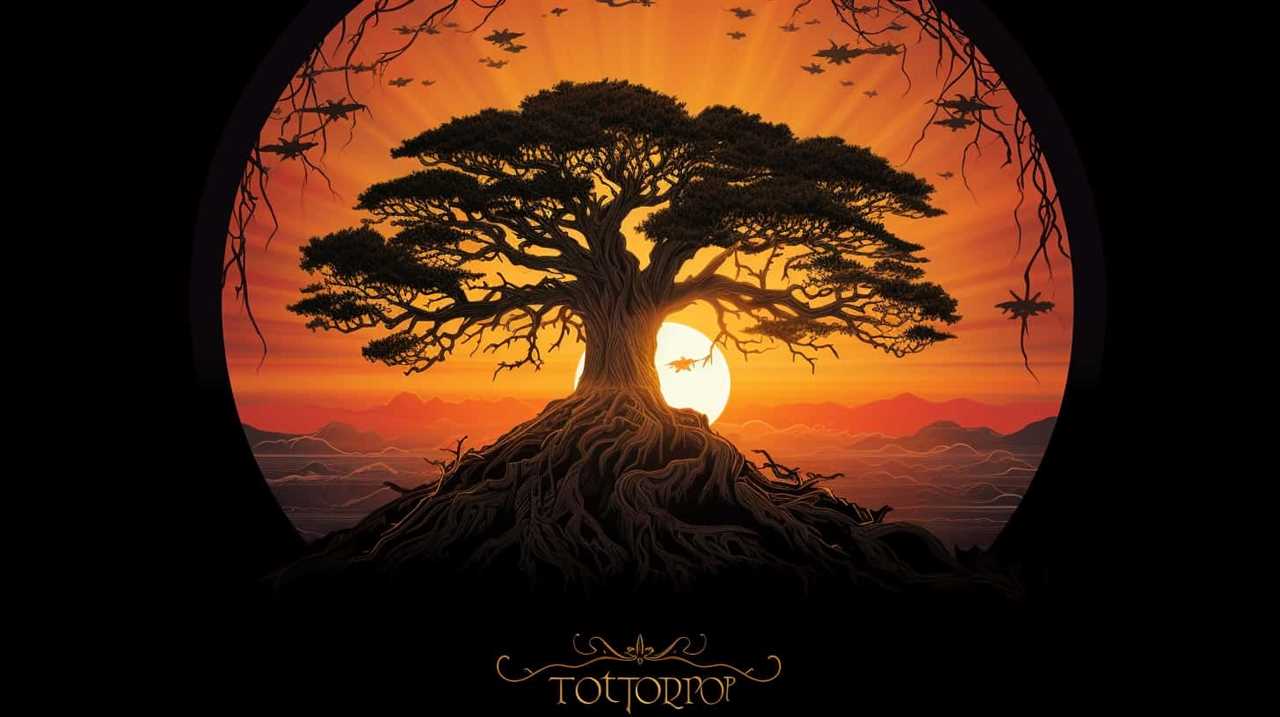
Daenerys Targaryen’s Empowering Quotes
Daenerys Targaryen, the Mother of Dragons, has captivated audiences with her strength and resilience throughout the Game of Thrones series.
Her empowering quotes have left a lasting impact, inspiring us to believe in ourselves and strive for greatness.
From her words of wisdom to her commanding presence, Daenerys embodies the qualities of an inspiring leader, making her quotes truly empowering.
Daenerys’ Strength and Resilience
How does Daenerys Targaryen’s unwavering strength and resilience inspire us all? Daenerys’ growth and transformation throughout the fantasy series has been nothing short of remarkable. From the timid and helpless girl in the beginning, she has emerged as a powerful and influential leader, leaving a lasting impact on others. Her journey teaches us that no matter how difficult the circumstances may be, we have the strength within us to conquer them. Daenerys’ empowering quotes resonate deeply, reminding us to embrace our inner strength and never give up. As we reflect on her journey, we are inspired to face our own challenges head-on, knowing that resilience and determination can lead to incredible growth and transformation. Daenerys’ story is a testament to the power of resilience and the impact one person can make.
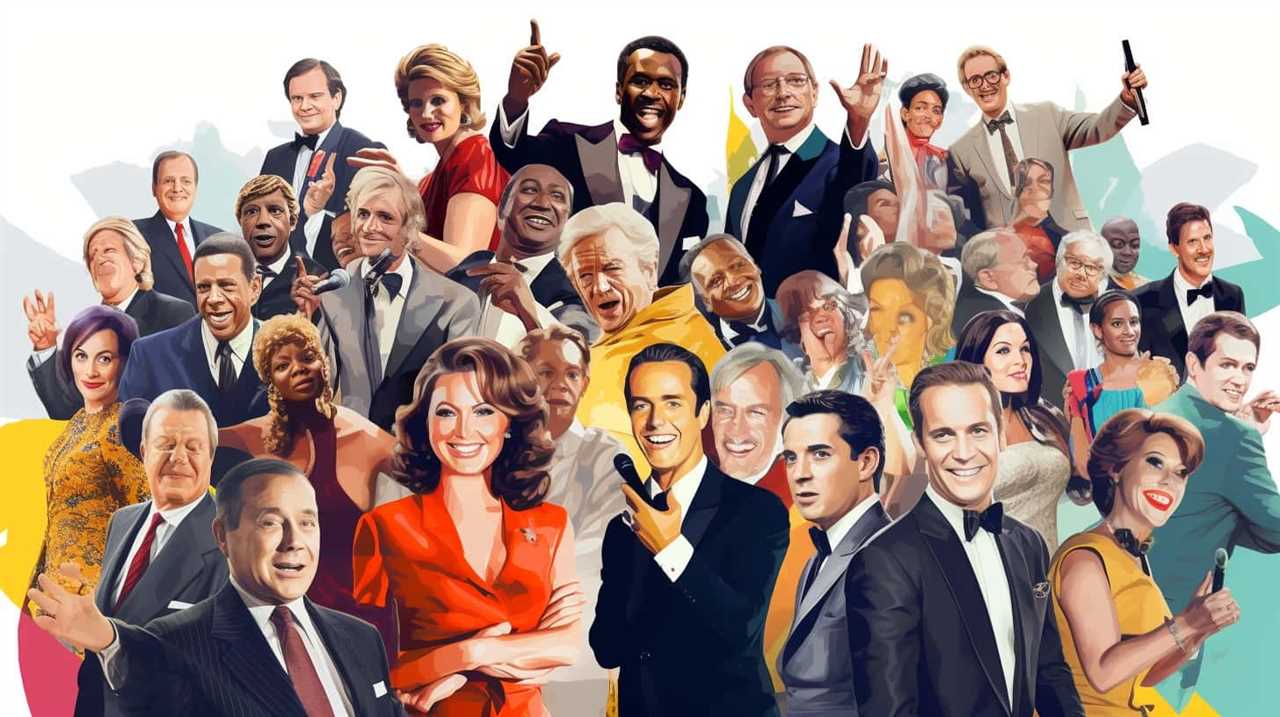
| Daenerys’ Strength and Resilience | Emotional Response |
|---|---|
| Overcoming adversity | Determination |
| Rising from ashes | Empowerment |
| Unyielding spirit | Courage |
| Inspiring transformation | Hope |
Daenerys’ unwavering strength and resilience not only inspire us individually but also have a profound impact on the world around her. Her words hold immense power, shaping the beliefs and actions of those who listen. In the next section, we will explore the impact of her words and how they resonate with people from all walks of life.
Impact of Her Words
Her words have a profound impact on our beliefs and actions, inspiring us to embrace our inner strength and strive for greatness. Daenerys Targaryen, the Mother of Dragons, possesses a gift for communication that can move even the coldest hearts. Here are four instances where her empowering quotes left a lasting impression:
- ‘I am the blood of the dragon. I must be strong. I must have fire in my eyes when I face them, not tears.’ This quote reminds us of the importance of resilience and determination in the face of adversity.
- ‘I will take what’s mine with fire and blood.’ These words ignite a fire within us, urging us to seize our ambitions and fight for what we believe in.
- ‘I’m not going to stop the wheel. I’m going to break the wheel.’ Daenerys challenges the status quo, inspiring us to question and dismantle oppressive systems.
- ‘A dragon isn’t a slave.’ This powerful statement reminds us that we’ve the power to break free from the chains that bind us and forge our own path.
Daenerys’ impact on our worldview is a testament to the importance of communication and the lasting effects of empowering words.
Inspiring Leadership Qualities
Continuing our exploration of Daenerys Targaryen’s empowering quotes, we’re inspired by the leadership qualities she embodies.
As a powerful leader, Daenerys possesses inspiring leadership qualities that resonate with those seeking innovation and progress. One of her most notable qualities is her unwavering determination to fight for justice and equality.
Through effective communication skills, she rallies her followers and inspires them to believe in her cause. Daenerys understands the importance of inspiring others with her words and uses her influence to motivate and empower those around her.
Her ability to inspire loyalty and devotion in her followers is a testament to her exceptional leadership skills.
As we delve deeper into the realm of fantasy series characters, let’s now turn our attention to Dumbledore’s lessons in life.
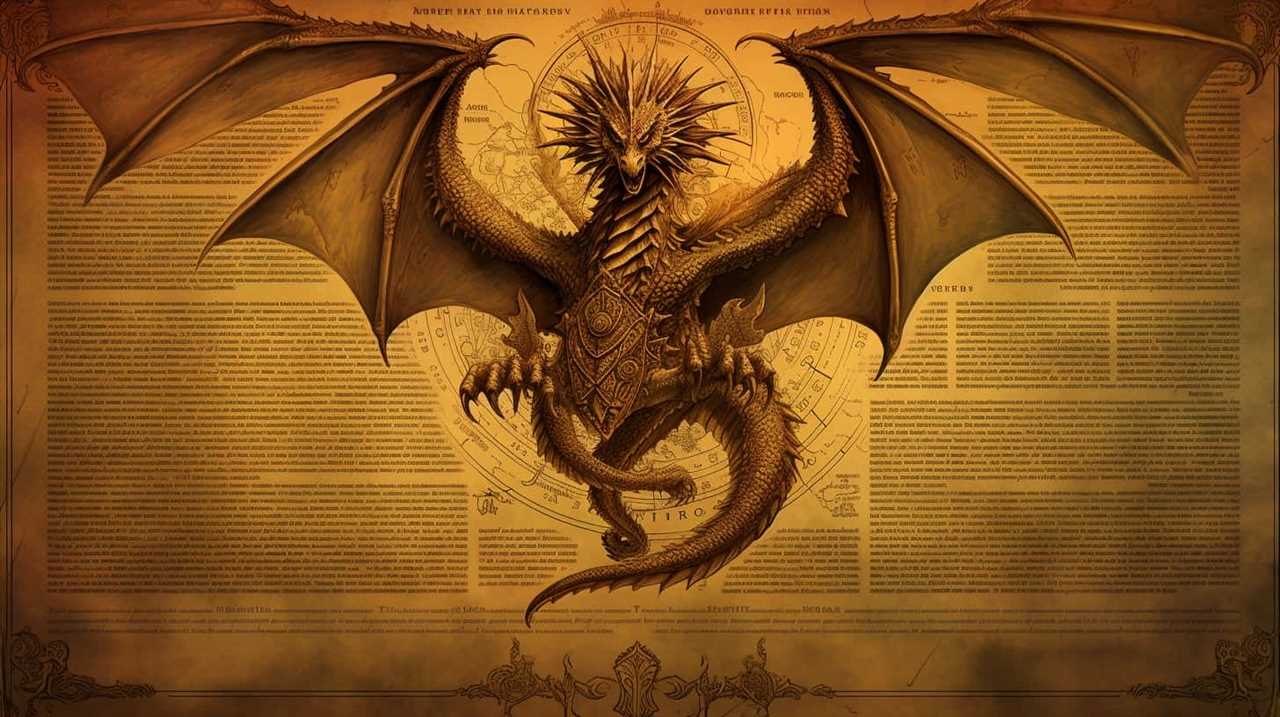
Dumbledore’s Lessons in Life
As we continue our exploration of inspiring quotes from fantasy series characters, it’s time to turn our attention to the wise teachings of Albus Dumbledore.
Dumbledore’s words of wisdom have resonated with readers and viewers alike, offering valuable life lessons that transcend the magical world of Harry Potter.
From his reminders about the power of love to his encouragement to embrace our differences, Dumbledore’s quotes remind us of the importance of kindness, bravery, and staying true to ourselves.
Let’s delve into Dumbledore’s wise words and discover the timeless wisdom they hold.![]()
Dumbledore’s Wise Words
Dumbledore imparts invaluable life lessons through his wise words, inspiring and guiding us along our own journey. Here are four of his most impactful quotes:
- ‘It doesn’t do to dwell on dreams and forget to live.’ Dumbledore reminds us to seize the present moment and make the most of our lives, rather than getting lost in fantasies.
- ‘Happiness can be found, even in the darkest of times, if one only remembers to turn on the light.’ These words teach us the importance of finding hope and positivity in the midst of adversity.
- ‘It is our choices, Harry, that show what we truly are, far more than our abilities.’ Dumbledore emphasizes the power of our choices, highlighting that our actions define our character.
- ‘Words are, in my not-so-humble opinion, our most inexhaustible source of magic.’ This quote reminds us of the transformative power of words, urging us to use them wisely and for the greater good.
Through his leadership qualities and impactful words, Dumbledore encourages us to embrace life, find happiness, make wise choices, and harness the magic of words.
Life Lessons From Dumbledore
Moving on to the topic of Life Lessons From Dumbledore, we can delve deeper into the invaluable wisdom imparted by this beloved character.
Dumbledore’s wisdom in adversity reminds us of the importance of resilience and courage in the face of challenges. As he famously said, ‘Happiness can be found, even in the darkest of times, if one only remembers to turn on the light.’ These words inspire us to find strength within ourselves when we feel overwhelmed by the difficulties that life throws our way.

Additionally, Dumbledore’s guidance in friendship teaches us the significance of loyalty and trust. He reminds us that true friends stand by us through thick and thin, and that the bonds we forge with others can bring us immeasurable joy and support.
Dumbledore’s lessons in life are a reminder of the power of wisdom and love, and they continue to resonate with audiences seeking inspiration and innovation.
Inspiring Dumbledore Quotes
Now let’s explore the profound wisdom and life lessons that Dumbledore imparts through his inspiring quotes. Here are four of his most impactful words that have resonated with readers and offered wisdom in times of adversity:
- ‘Happiness can be found even in the darkest of times if one only remembers to turn on the light.’ This quote reminds us that no matter how difficult life may seem, there’s always a glimmer of hope that can guide us out of the darkness.
- ‘It doesn’t do to dwell on dreams and forget to live.’ Dumbledore teaches us the importance of balancing our aspirations with the present moment, encouraging us to seize the opportunities that life presents.
- ‘We must all face the choice between what’s right and what’s easy.’ This quote reminds us that doing what’s right often requires courage and sacrifice, but it’s the path that leads to growth and personal integrity.
- ‘Words are, in my not-so-humble opinion, our most inexhaustible source of magic.’ Dumbledore highlights the power of words to inspire, heal, and connect us. It encourages us to use our words wisely and with kindness.
Dumbledore’s impact on readers is undeniable, as his wisdom in adversity continues to inspire and guide us through life’s challenges.
Jon Snow’s Words of Honor
Jon Snow’s words of honor resonate with us, reminding us of the importance of integrity and loyalty. His unwavering commitment to doing what is right, even in the face of adversity, serves as a powerful lesson for us all. In the world of "Game of Thrones," where deceit and treachery are common, Jon Snow stands out as a beacon of honor and virtue.
| Jon Snow’s Honor | ||
|---|---|---|
| "I am the sword in the darkness" | "I pledge my life and honor to the Night’s Watch" | "I will do what is right, no matter the cost" |
| "When enough people make false promises, words stop meaning anything" | "I am not a Stark. I’m a Snow." | "The North remembers" |
These quotes reflect the power of integrity, showcasing Jon Snow’s unwavering dedication to his duty and his people. They remind us that our words hold weight and meaning, and that staying true to our principles is crucial, even when faced with difficult choices. Jon Snow’s honor serves as an inspiration for us to stand up for what we believe in and to always strive to do the right thing, no matter the consequences.
In a world that often values cunning and manipulation, Jon Snow’s unwavering commitment to honor and integrity is a refreshing reminder of the importance of staying true to oneself. His words carry weight, resonating with us and reminding us of the power of integrity. Whether it is pledging his life to the Night’s Watch or making tough choices for the greater good, Jon Snow’s honor serves as a beacon of inspiration. As he once said, "I am the sword in the darkness," reminding us that even in the face of darkness, our integrity can be a guiding light. His words, such as "The North remembers," remind us that loyalty and honor are not easily forgotten. Jon Snow’s unwavering commitment to doing what is right, no matter the cost, serves as a powerful lesson for us all.
Katniss Everdeen’s Brave Declarations
In the realm of inspiring declarations, Katniss Everdeen’s brave words resonate with us, reminding us of the power of resilience and determination. As a role model for girls everywhere, her unwavering bravery and unwavering determination have captivated our hearts and inspired us to stand up for what we believe in.

Here are four of her most memorable declarations:
- ‘I volunteer as tribute!’ – Katniss’s selfless act of taking her sister’s place in the Hunger Games showcased her bravery and willingness to sacrifice herself for the ones she loves. It teaches us the importance of standing up for others, even in the face of danger.
- ‘I am not a piece in their Games.’ – This declaration highlights Katniss’s determination to defy the oppressive Capitol and refuse to be manipulated. It reminds us that we’ve the power to challenge unjust systems and fight for our own autonomy.
- ‘Fire is catching. And if we burn, you burn with us!’ – In this defiant statement, Katniss inspires us to rise up against tyranny and injustice. It reminds us that our actions can have a ripple effect, igniting a flame of resistance and inspiring others to join the fight.
- ‘I am the Mockingjay.’ – As the symbol of rebellion, Katniss’s declaration of being the Mockingjay signifies her role as a leader and her commitment to the cause. It encourages us to embrace our own unique strengths and use them to make a difference in the world.
Katniss Everdeen’s brave declarations serve as a reminder of the importance of bravery and determination in the face of adversity. She continues to be a role model for girls, showing them that they’ve the power to change the world through their actions and their words.
Frodo Baggins’ Journey of Courage
Continuing with our exploration of inspiring characters, we are drawn to Frodo Baggins and his incredible journey of courage. Frodo, the hobbit protagonist in J.R.R. Tolkien’s "The Lord of the Rings," showcases remarkable inner strength and unwavering determination throughout the epic tale.
| Frodo’s Inner Strength | Frodo’s Unwavering Determination |
|---|---|
| Overcoming the Ring’s Power | Pushing through physical and mental obstacles |
| Resisting the temptation | Defying the odds and persevering against all challenges |
| Bearing the burden | Remaining focused on the mission despite overwhelming odds |
| Sacrificing personal gain | Refusing to give up until the task is completed |
Frodo’s inner strength is evident in his ability to resist the corrupting power of the One Ring. Despite its allure, Frodo stays true to his purpose and resists the temptation to use it for personal gain. His unwavering determination shines through as he pushes through physical and mental obstacles. From battling treacherous landscapes to facing terrifying creatures, Frodo never loses sight of his ultimate goal.
Bearing the burden of carrying the Ring, Frodo demonstrates tremendous resilience. He endures physical and emotional exhaustion, yet remains focused on the mission at hand. His sacrifices, both personal and physical, showcase his unwavering determination to see the task through to the end.
Frodo Baggins’ journey of courage serves as a reminder of the strength we all possess within ourselves. His unwavering determination and inner strength inspire us to persevere in the face of adversity, reminding us that even the smallest of beings can achieve greatness.
Arya Stark’s Lessons in Strength
Arya Stark, a character from the fantasy series, teaches us valuable lessons in strength through her actions and experiences. Her growth throughout the series is a testament to the power of resilience and determination. Here are four key lessons we can learn from Arya Stark’s journey of overcoming adversity:
- Embrace your uniqueness: Arya’s refusal to conform to societal expectations showcases the strength that comes from being true to oneself. She embraces her tomboyish nature and rejects the limitations placed upon her as a woman.
- Never give up: Despite facing countless obstacles and heartbreaking losses, Arya never loses sight of her goals. She continues to fight for justice and vengeance, never succumbing to despair.
- Adaptability is key: Arya learns to adapt to new environments and situations with ease. From her training as a Faceless Man to surviving on her own, she shows us the importance of being flexible and resourceful.
- Forge your own path: Arya’s refusal to be defined by her noble heritage or societal expectations is a powerful lesson in empowerment. She forges her own path, unafraid to challenge the status quo and make her mark on the world.
Arya Stark’s journey is a reminder that strength comes not from physical prowess, but from the resilience of the human spirit. Her growth and ability to overcome adversity inspire us to be bold, embrace our uniqueness, and forge our own paths.
Merlin’s Magical Wisdom
We are captivated by the enchanting wisdom that Merlin, a character from the fantasy series, imparts through his magical words. Merlin’s magical abilities, combined with his guidance and mentorship, make him a truly remarkable character. His words are filled with profound insights and timeless lessons that continue to inspire and captivate audiences.
| Wisdom from Merlin | Meaning |
|---|---|
| "The greatest magic is not found in spells or potions, but in the power of one’s mind." | Merlin teaches us that true magic comes from within ourselves, and that our thoughts and beliefs have the power to shape our reality. |
| "In every challenge lies an opportunity for growth." | Merlin reminds us that even in the face of adversity, there is always a chance for personal development and transformation. |
| "A true leader is not the one who seeks power, but the one who empowers others." | Merlin emphasizes the importance of leadership through service, encouraging us to uplift and support those around us. |
| "Wisdom is not gained through age, but through the willingness to learn and adapt." | Merlin reminds us that true wisdom comes from a curious and open mind, and that we should always be willing to embrace new knowledge and experiences. |
| "The greatest gift we can give is the gift of forgiveness." | Merlin teaches us the power of forgiveness, and how it can bring healing and liberation to both ourselves and others. |
As we delve into the magical wisdom of Merlin, we are reminded of the transformative power that lies within us. But now, let us explore the poetic wisdom of Legolas, another beloved character from the fantasy series.
Legolas’ Poetic Wisdom
When it comes to poetic wisdom, Legolas, the elven archer from J.R.R. Tolkien’s ‘The Lord of the Rings’, has left an indelible mark on readers and movie-goers alike. His insightful quotes resonate with a timeless beauty, offering profound insights into life, love, and the power of nature.
From his thoughts on the fleeting nature of time to his reflections on the beauty of the world, Legolas’ words are a testament to the depth of his character and the wisdom he imparts.
Legolas’ Poetic Insights
Legolas’ poetic insights captivate us with their profound beauty and timeless wisdom. His words reveal a deep connection with nature and provide profound insights on friendship. Here are four of Legolas’ most inspiring quotes that evoke a range of emotions:
- ‘The leaves were long, the grass was green, the hemlock-umbels tall and fair, and in the glade a light was seen of stars in shadow shimmering.’ This quote transports us to a serene forest, awakening a sense of peace and tranquility.
- ‘He is a friend indeed. Don’t let him speak ever again of me or my father. If he does, he’ll not speak again.’ This line showcases Legolas’ unwavering loyalty and protective nature, stirring feelings of devotion and camaraderie.
- ‘Not all those who wander are lost.’ These words remind us that sometimes, the most extraordinary journeys happen when we embrace the unknown. It sparks a sense of adventure and curiosity within us.
- ‘The world is indeed full of peril, and in it there are many dark places; but still there’s much that’s fair, and though in all lands love is now mingled with grief, it grows perhaps the greater.’ This quote encapsulates Legolas’ wise perspective on the balance between darkness and light, reminding us to find hope and beauty in even the most challenging times.
Legolas’ poetic insights resonate with us, offering profound wisdom and inspiring us to embrace nature, cherish our friendships, and find joy in the world around us.
Inspirational Quotes From Legolas
Continuing the exploration of profound wisdom and poetic insights, we delve into the realm of fantasy with the inspirational quotes from Legolas, evoking a sense of wonder and enlightenment.
Legolas, the elven archer from J.R.R. Tolkien’s beloved trilogy, The Lord of the Rings, not only captivates us with his exceptional archery skills, but also with his unwavering loyalty to his friends.
‘The bow is a weapon of precision. It requires focus, patience, and a steady hand,’ Legolas reminds us. His words inspire us to hone our skills and strive for excellence in all that we do.
Furthermore, Legolas teaches us the true meaning of friendship, stating, ‘A friend is a treasure beyond measure, and I’d walk through fire to protect those I hold dear.’
These quotes from Legolas remind us of the importance of mastery and loyalty in our own lives, encouraging us to aim high and stand by those we care about.
Sansa Stark’s Lessons in Resilience
Despite the challenges she faces throughout the fantasy series, Sansa Stark teaches us valuable lessons in resilience. Her journey from a naive young girl to a strong and determined woman inspires us to face adversity head-on and never give up.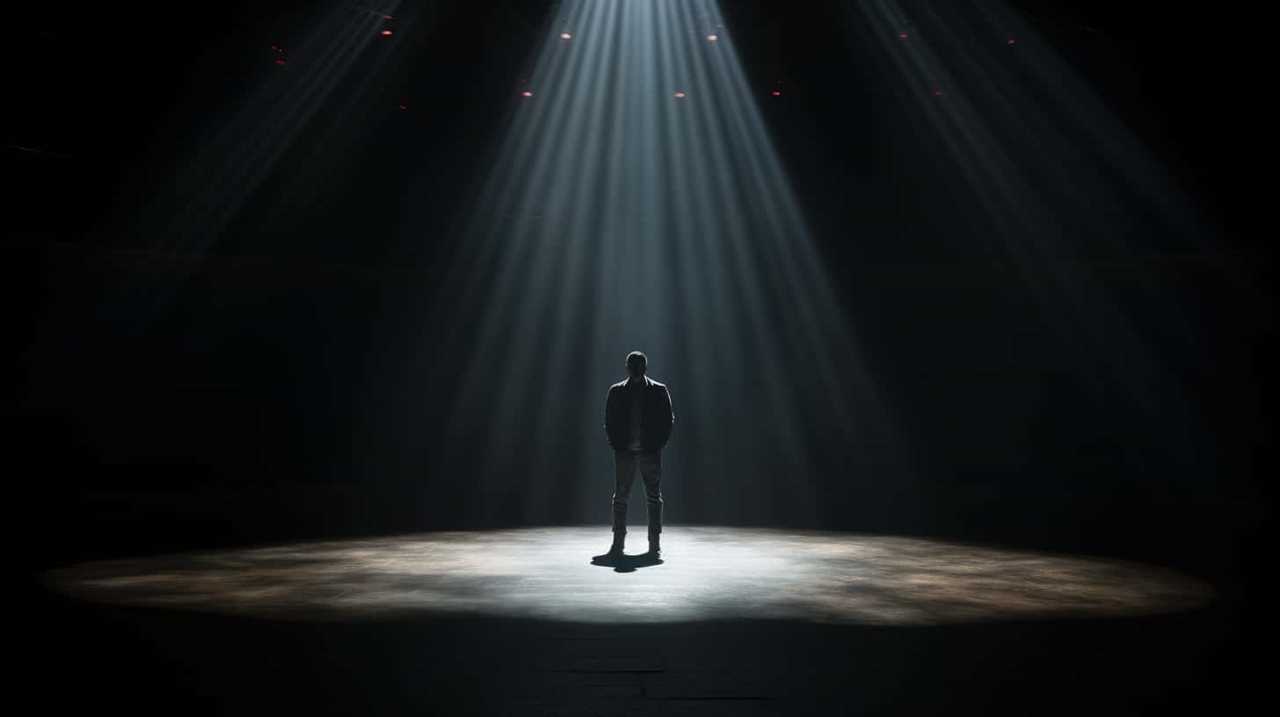
Here are four key lessons we can learn from Sansa’s story:
- Resilience in adversity: Sansa endures unimaginable hardships, from the abuse inflicted by Joffrey to the torment of living in King’s Landing. Despite these trials, she remains resilient, never losing sight of her goals or succumbing to despair.
- The power of vulnerability: Sansa’s vulnerability is often seen as a weakness, but she proves that it can be a strength. By allowing herself to feel and express her emotions, she learns to navigate the treacherous political landscape and outmaneuver her enemies.
- Adaptability and survival: Sansa demonstrates the ability to adapt to new circumstances and survive in hostile environments. She learns to play the game of thrones, using her intelligence and cunning to protect herself and those she cares about.
- Finding inner strength: Sansa discovers her inner strength and learns to trust her instincts. She evolves from a passive observer to an active participant in shaping her own destiny, refusing to be a victim any longer.
Through Sansa Stark’s journey, we’re reminded of the importance of resilience, vulnerability, adaptability, and inner strength. Her story serves as a powerful reminder that even in the face of adversity, we can find the courage to overcome and thrive.
Harry Potter’s Messages of Hope
Through Sansa Stark’s lessons in resilience, we’re now ready to explore Harry Potter’s messages of hope. In J.K. Rowling’s beloved series, Harry Potter teaches us the power of friendship and the importance of never giving up. Harry’s journey is filled with challenges and darkness, but he never loses hope. He shows us that even in the face of adversity, there’s always a glimmer of light.
One of the key messages of the Harry Potter series is the strength of friendship. Harry, along with his loyal companions Ron Weasley and Hermione Granger, exemplifies the power of standing together. They teach us that true friends are there for each other through thick and thin, supporting and protecting one another.
Hermione Granger, in particular, provides lessons in bravery. She’s intelligent, resourceful, and never afraid to speak up for what’s right. Her unwavering courage inspires us to be bold and face our fears head-on.
Harry Potter’s messages of hope remind us that even in the darkest of times, there’s always hope for a better future. It’s through his resilience, friendship, and bravery that Harry becomes a symbol of hope for both his fellow characters and readers alike. His story teaches us to believe in ourselves, to never lose sight of what’s important, and to always hold onto hope, no matter how dire the circumstances may seem.
Frequently Asked Questions
What Are Some of Gandalf’s Most Memorable Quotes From the ‘Wisdom Whispers: Fantasy Series Characters’ Most Inspiring Quotes’ Article?
Some of Gandalf’s most memorable quotes from the "Wisdom Whispers: Fantasy Series Characters’ Most Inspiring Quotes" article include "All we have to decide is what to do with the time that is given us" and "A wizard is never late, nor is he early, he arrives precisely when he means to." These wise insights from Gandalf and Hermione Granger inspire us to make the most of our time and trust in our own timing.
Can You Provide Some Examples of Hermione Granger’s Wise Insights Mentioned in the Article?
Hermione Granger’s wise insights, like Gandalf’s memorable quotes, offer valuable lessons. From reminding us of the importance of bravery and loyalty to emphasizing the power of knowledge and friendship, her words inspire and guide us on our own magical journey.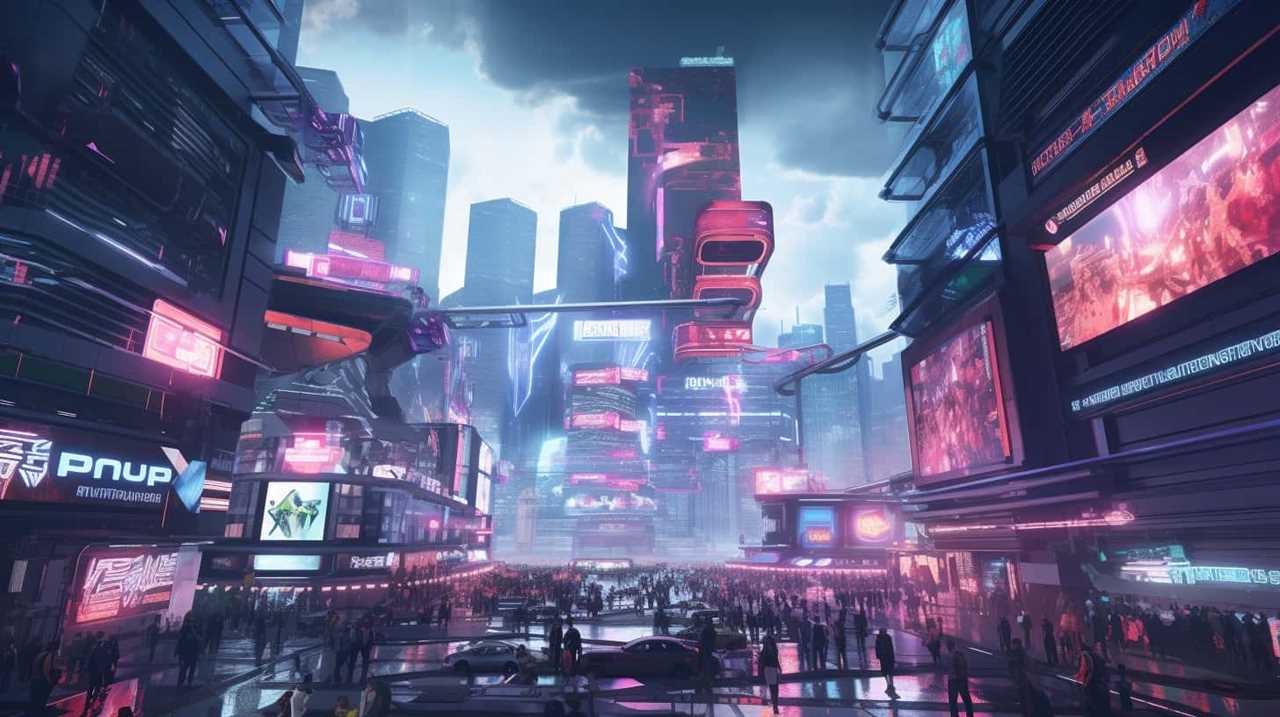
What Are Some of the Sharp and Witty Remarks Made by Tyrion Lannister in the ‘Wisdom Whispers: Fantasy Series Characters’ Most Inspiring Quotes’ Article?
Tyrion Lannister’s clever remarks in "Wisdom Whispers" are as sharp as a dagger. They provide a dose of wit and wisdom, rivaling even Gandalf’s memorable quotes. Prepare for a journey of innovative inspiration!
Could You Share a Few of the Inspirational Speeches Delivered by Aragorn That Are Highlighted in the Article?
Aragorn’s inspirational speeches from the ‘Wisdom Whispers: Fantasy Series Characters’ Most Inspiring Quotes’ article include powerful words like "A day may come when the courage of men fails, but it is not this day." and "I will not let the White City fall, nor our people fail."
Can You Give a Few Examples of Empowering Quotes From Daenerys Targaryen Mentioned in the ‘Wisdom Whispers: Fantasy Series Characters’ Most Inspiring Quotes’ Article?
We found some empowering quotes from Daenerys Targaryen in the ‘Wisdom Whispers’ article. Examples include "I will take what is mine with fire and blood" and "I am the blood of the dragon, I must be strong, I must have fire in my eyes when I face them, not tears."
Conclusion
In conclusion, the characters from these fantasy series have left us with a treasure trove of inspiring quotes that continue to resonate with readers and viewers alike.

From Gandalf’s wisdom to Hermione’s insights, Tyrion’s wit to Aragorn’s speeches, and Daenerys’ empowerment to Merlin’s magical wisdom, each character brings their own unique perspective and lessons.
So whether you’re in need of resilience, hope, or a touch of magic, these characters have got you covered.
Lauren’s talent in writing is matched by her passion for storytelling. Her love for books and deep understanding of culture and entertainment add a distinct flavor to her work. As our media and press contact, Lauren skillfully bridges the gap between afterQuotes and the broader media landscape, bringing our message to a wider audience.
-

 Funerals Quotations3 months ago
Funerals Quotations3 months agoSoothing Hope Quotes for Funeral Reflections
-

 TV Shows Quotations2 months ago
TV Shows Quotations2 months agoTop 4 Unforgettable TV Drama Monologues
-

 Movies Quotations4 weeks ago
Movies Quotations4 weeks agoUnforgettable Cult Movie Quotes: A Compiled List
-

 Education and Knowledge1 week ago
Education and Knowledge1 week agoUnlock Success with the Best Study Motivation Quotes
-

 Travel and Exploration Quotations3 weeks ago
Travel and Exploration Quotations3 weeks agoWisdom on Waves: Notable Maritime Explorer Quotations
-

 Education and Knowledge1 week ago
Education and Knowledge1 week agoBest Study Quotes: Unlock Student Potential!
-

 Military Quotations2 months ago
Military Quotations2 months agoInspiring Military Quotations for Strength & Honor
-

 Travel and Exploration Quotations3 weeks ago
Travel and Exploration Quotations3 weeks agoWhy Travel Teaches Unforgettable Life Wisdom?


















